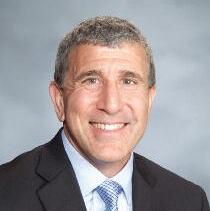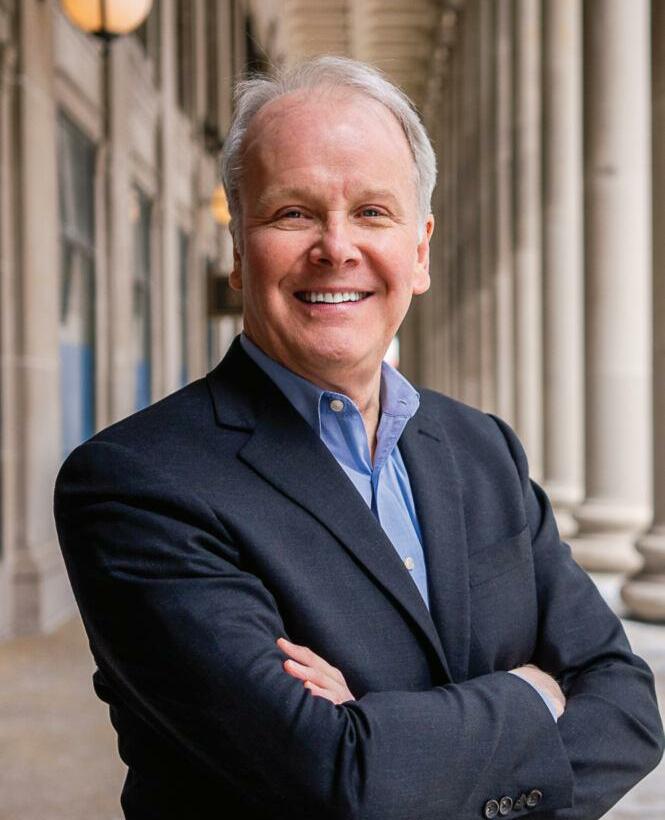EXPLORING THE ISSUES THAT SHAPE TODAY’S BUSINESS WORLD


Capitalizing on Cannabis | TCJA: Has the Chance Paid Off?
You ‘Swiped Right ’ on Accounting. Now what? | Making the Case for Making Less Surviving the Second Busy Season
Featuring Columns From:
MARK GILBERT TINA GOLSCH MARTY GREEN TIM JIPPING
ART KUESEL JON LOKHORST ELIZABETH PITTELKOW KITTNER
TODD SHAPIRO KEITH STAATS
FALL 2019 +



SIMPLE ONLINE PAYMENTS FOR CPA FIRMS cpacharge.com/icpas 866-526-7320 CPACharge is proud to be a vetted and approved Member Benefit of the Special offer for ICPAS members
is an easy-to-use practice management tool trusted by more than 60,000 successful professionals, developed exclusively for CPAs to help manage payments and grow revenue in their practice. PCI COMPLIANCE INCLUDED ($150 VALUE) SIMPLE REPORTING AND RECONCILIATION UNLIMITED SUPPORT BY PHONE, LIVE CHAT, AND EMAIL DESIGNED FOR CPAs CPACharge s a reg ste ed agent of Wel s Fa go Bank N A Concord CA and C t zens Bank N A Prov dence R 0%, $2/TRANSACTION eCHECK PROCESSING RECURRING BILLING AND SCHEDULED PAYMENTS SECURE, CUSTOMIZABLE PAYMENT PAGES $1,000 Exp. Card Number CVV **** **** **** 9998 001 Invoice Number 1005 NOV 2021 Payment Detail Submit to Smith Johnson, CPA Pay CPA P O W E R E D B Y
CPACharge




2 INSIGHT | www icpas org/insight FALL 2019 www icpas org/insight CAPITALIZING ON CANNABIS 2 02 3 2 42 7 BALANCING THE ART OF FEEDBACK TCJA : HAS THE CHANCE PAID OFF? spotlights 4 Today ’s CPA Are You Committed to Excellence? By Todd Shapiro 6 Capitol Report Fall Veto Session: A Recipe for Chaos By Marty Green, Esq 8 Seen & Heard Inspiring Women to Take the Lead By Nancy Clarke 42 Gen Next Your Career Is a Journey, Not a Destination By Nicole Presperin, CPA 44 IN Play Q&A With Lee Gould, Managing Member, Gould & Pakter Associates LLC By Eric Scott trends 10 Career Management You ‘Swiped Right ’ on Accounting Now what? By Brad Sargent, CPA/CFF, CFE, CFS, CCA , FABFA 12 Leadership & People Management Making the Case for Making Less By Bridget McCrea 14 Practice Management Surviving the Second Busy Season Scaries By Jeff Stimpson insights 28 Firm Journey Is It Time for You to Go It Alone? By Tim Jipping, CPA , CGMA 30 Corporate Calling Why Every Corporate Accountant Needs Project Management Skills By Tina Golsch, CPA , MBA 32 Leadership Matters 5 Ways to Engage Millennial and Gen Z Talent By Jon Lokhorst, CPA , ACC 34 Practice Perspectives Is Busy Season Killing Your Prospect Pipeline? By Art Kuesel 36 Financially Speaking The Secret to Earning Lifelong Clients By Mark J Gilbert, CPA/PFS, MBA 38 Ethics Engaged Weeding Through the Ethics of Serving Cannabis Clients By Elizabeth Pittelkow Kittner, CPA , CGMA , CITP, DTM 40 Tax Decoded Illinois’ Incomprehensible Sales Tax Law By Keith Staats, JD 1 61 9
careercenter
www.icpas.org/career s
As a benefit of your Illinois CPA Society membership, both job hunters and employers can take advantage of the Career Center:
SHARE your resume with employers (even confidentially)

RECEIVE new job aler ts sent directly to your email
STREN GTHEN your resume with career resources and coaches
POST jobs online quickly and simply (fees apply)
CREATE aler ts for resumes and manage applications
ILLINOIS CPA SOCIET Y
550 W Jackson Boulevard, Suite 900, Chicago, IL 60661
www icpas org
Publisher/President & CEO
Todd Shapiro
Editor Derrick Lilly
Creative Director
Gene Levitan
Copy Editors
Nancy Clarke | Mari Watts
Photography Derrick Lilly
Circulation
John McQuillan
ICPAS OFFICERS
Chairperson
Geoffrey J Harlow, CPA | Wipfli LLP
Vice Chairperson
Dorri C McWhorter, CPA, CGMA, CITP | YWCA Metropolitan Chicago
Secretar y
Thomas B Murtagh, CPA, JD | BKD LLP
Treasurer
Elizabeth Pittelkow Kittner, CPA, CGMA, CITP, DTM
International Legal Technology Association
Immediate Past Chairperson
Rosaria Cammarata, CPA, CGMA | CDK Global Inc
ICPAS BOARD OF DIRECTORS
John C Bird, CPA | RSM US LLP
Brian J Blaha, CPA | Wipfli LLP
Jennifer L Cavanaugh, CPA | Grant Thornton LLP
Jon S Davis, CPA (AZ Ret ) | University of Illinois
Stephen R Ferrara, CPA | BDO USA LLP
Mary K Fuller, CPA | Shepard Schwartz & Harris LLP
Jennifer L Goettler, CPA, CFE | Heinold Banwart Ltd
Jonathan W Hauser, CPA | KPMG LLP
Scott E Hurwitz, CPA | Deloitte LLP
Joshua D Lance, CPA, CGMA | Lance CPA Group
Deborah K Rood, CPA, MST | CNA Insurance
Seun Salami, CPA | Teachers Insurance and Annuity Association of America
Stella Marie Santos, CPA | Adelfia LLC
Andrea K Urban, CPA | ThoughtWorks Inc
BACK ISSUES + REPRINTS
Back issues may be available Articles may be reproduced with permission
Please send requests to lillyd@icpas org
ADVERTISING
Want to reach 25,000 accounting and finance professionals? Advertising in INSIGHT and with the Illinois CPA Society gives you access to Illinois’ largest financial community Contact Mike Walker at mike@rwwcompany com
INSIGHT is the magazine of the Illinois CPA Society Statements or articles of opinion appearing in INSIGHT are not necessarily the views of the Illinois CPA Society The materials and information contained within INSIGHT are offered as information only and not as practice, financial, accounting, legal or other professional advice Readers are strongly encouraged to consult with an appropriate professional advisor before acting on the information contained in this publication It is INSIGHT’s policy not to knowingly accept advertising that discriminates on the basis of race, religion, sex, age or origin The Illinois CPA Society reserves the right to reject paid advertising that does not meet INSIGHT’s qualifications or that may detract from its professional and ethical standards The Illinois CPA Society does not necessarily endorse the non-Society resources, services or products that may appear or be referenced within INSIGHT, and makes no representation or warranties about the products or services they may provide or their accuracy or claims The Illinois CPA Society does not guarantee delivery dates for INSIGHT The Society disclaims all warranties, express or implied, and assumes no responsibility whatsoever for damages incurred as a result of delays in delivering INSIGHT INSIGHT (ISSN-1053-8542) is published four times a year, in Spring, Summer, Fall, and Winter, by the Illinois CPA Society, 550 W Jackson, Suite 900, Chicago, IL 60661, USA, 312 993 0407 Copyright © 2019 No part of the contents may be reproduced by any means without the written consent of INSIGHT Send requests to the address above Periodicals postage paid at Chicago, IL and at additional mailing offices
POSTMASTER: Send address changes to: INSIGHT, Illinois CPA Society, 550 W Jackson, Suite 900, Chicago, IL 60661, USA
Find the tools you need to succeed!
today’sCPA
Are You Committed to Excellence?
In a culture of excellence, these become the norm: accountability, communication, efficiency, innovation, positivity, and quality. Shouldn’t we all strive for that?
Mytime in corporate finance exposed me to how businesses often revel in their mission statements committing them to excellence And while some people dismiss claims of excellence as marketing speak, others argue that true excellence initiatives improve processes and quality, lower costs and, ultimately, positively impact morale Others point to excellence as key to greater client or customer satisfaction, profitability, and sustainability what business wouldn’t benefit from that? For many of us in the business world, striving for excellence is something we hear encouraged all the time But what does excellence really mean when everyone defines it differently? For me, I define excellence as “doing the right thing right the first time ” Let’s break that down

Doing the right thing: How many times do you take on tasks or delegate work to someone and it doesn’t quite hit the mark, which leads to frustration and rework for everyone? If this sounds familiar, I’m guessing you don’t think this is excellent and your colleagues, clients, or customers probably don’t either Excellence means engaging in comprehensive communication to ensure that everyone is on the same page right from the start
Right: When you do something, do you ensure that your work is correct, or do you get it done quickly knowing that time is short and someone up the chain will fix any mistakes? Given the pace of change in our profession and the broader business world, it’s easy to get caught up in being busy and pushing things out as quickly as possible But excellence is equated with accuracy In accounting and finance, we know the implications of computational errors, but even something as simple as a typo or grammatical slip-up can compromise your work, leading to further mistakes, misunderstandings, and miscommunications Excellence demands that, whatever you do, it’s done accurately and with pride and accountability
The first time: Hopefully the work you do or the work you delegate out eventually hits the mark The question is, how many iterations did you go through to accomplish that goal? Excellence requires embracing communication, accountability, and quality to reduce the number of times something must be done and re-done While these might sound like management buzzwords, I promise you that committing to these traits will improve your teamwork, efficiency, innovation, and relationships I’m not saying that even with good communication every
project will go as planned and every work product will hit its mark, but they should be closer and require fewer iterations
We all know the frustration and lost productivity of doing and redoing things I truly believe that embracing a culture of excellence can change this for you and your organization and, ultimately, our profession How does one go about building a culture of excellence? It starts with honesty If we make mistakes or miss the mark, we need to be honest with ourselves and understand our shortfalls If there’s always an excuse or you always think it’s something or someone else’s fault, you’ll struggle with excellence
Once we get past honesty, commitment is critical to achieving excellence Everyone, at all levels, needs to be committed to excellence at all times not just when there’s time We can’t lose our commitment whenever we ’ re overwhelmed or over-worked
One will never achieve excellence without clear, concise, and thorough communication Listening and asking questions are important aspects of doing the right thing right the first time Repeating back what’s expected of you is a method of verifying the expected outcome Finally, there’s accountability We have to hold ourselves and each other accountable to our work product Accountability isn’t fun because it can sometimes result in confrontation However, without accountability, excellence is doomed to fail Having those hard but necessary conversations is just another aspect of being committed to thorough communication
If you ’ re thinking that embracing excellence sounds like a lot of work and requires constant vigilance, it is That said, I think it’s worth it Embracing excellence could be the difference between being a client’s tax-time accountant or being their most valued business advisor; it could be the difference between sitting in the backroom or sitting in the boardroom; it could be the difference between losing relevance in the market or being a market leader
Rest assured, here at the Illinois CPA Society we ’ ve been exploring our own excellence initiative We’re committed to excellence in the work we do serving you, our members, our communities, and the CPA profession Will you make the same commitment?
 INSIGHTS FROM TODD SHAPIRO, ICPAS PRESIDENT & CEO @Todd ICPAS
INSIGHTS FROM TODD SHAPIRO, ICPAS PRESIDENT & CEO @Todd ICPAS
4 INSIGHT | www icpas org/insight
Rise above the rest CERTIFICATE PROGRAMS


Today’s business landscape is evolving at war p speed. Shouldn’ t you be doing the same?


Our new Cer tificate Prog rams will help you:


• Rapidly acquire specif ic technical exper tise

• Dif ferentiate your self in your profession
• Open the door to new oppor tunities and higher ear nings

• Become an indispensable asset to your f irm or company
Earn t he Recognition You Deser ve Completed programs ear n you a respected micro-credential (a cer tif icate from ICPAS and the AICPA) along with a digit al badge to proudly display on your resume, e-mail signature and social media

U pskilling Has Never Been Easier
Our on-demand format allows you to complete our Cer tif icate Programs anywhere, anytime.
For more information visit www.icpas.org/cer tif icate

ICPAS NFP (Not-for-Profit) Beginner ICPAS NFP (Not-for-Profit) Advanced ICPAS CyberSecurity Advisory Services ICPAS Data Analysis Fundamentals ICPAS SOC for Cybersecurity ICPAS Blockchain Fundamentals for Accounting & Finance Professionals ICPAS International Financial Reporting Standards (IFRS) ICPAS Cybersecurity Fundamentals for Accounting & Finance Professionals
Current Cer tificate Programs:
Fall Veto Session: A Recipe for Chaos
With landmark legislation needing corrective amendments and a tax on professional services possibly coming to light, the Illinois General Assembly is destined for a chaotic fall.

Gaming expansion Sports betting Recreational cannabis Infrastructure Even a state operating budget? Yes, Governor J B Pritzker and the democratic majorities in the House and Senate scored an impressive legislative tally during the spring legislative session I would add that many of these measures and hundreds of others were passed with bi-partisan support, including the always-elusive state operating budget and a vertical and horizontal capital infrastructure program All told, the final tally stands at 591 bills signed and eight bills vetoed by the governor
The breadth of legislation passed during the spring left state agencies like the Department of Revenue, Gaming Board, and Department of Financial and Professional Regulation, spending their summer months preparing for implementation Unsurprisingly, these preparations have identified several technical issues that need to be addressed and corrections that must soon be made in order for the legislation signed into law to be fully implemented as intended
The General Assembly has six working days scheduled for its fall veto session when it would typically review and consider the governor ’ s vetoes and determine if they, for whatever reason, should be overridden I suspect the General Assembly will spend little time convened over vetoes this fall Rather, legislators will likely reconvene in regular session to consider corrective amendments to legislation recently signed into law
Much of the focus is likely to fall on the technical issues tied to the variety of gaming, tax, and cannabis legislation passed It’s also likely that legislation to close the embattled Sterigenics facility in Willowbrook, Ill will be considered
One area that we are closely watching is if Chicago Mayor Lori Lightfoot will request the General Assembly to pass legislation authorizing the City of Chicago to tax professional services, such as law firms and accounting firms Lightfoot first floated the idea of a valueadded tax (VAT) on high-end law firms and international accounting firms the weekend before the March 2019 Mayoral Election Now as mayor, Lightfoot is seeking all ways possible to combat Chicago’s hemorrhaging financial situation and municipal pension obligations She has even asked Pritzker to consider consolidating Chicago’s pensions into the state pension systems and taxing retirement income as a mechanism to help fund the pension obligations Pritzker readily rejected Lightfoot on these issues, which seems to have spurred Lightfoot to resort back to talking about taxing “high-end professional services ”
6 INSIGHT | www icpas org/insight
capitolreport
LEGISLATIVE INSIGHTS FROM MARTY GREEN, ESQ , ICPAS VP OF GOVERNMENT RELATIONS @GreenMarty
As of the time of this writing, Lightfoot has not put anything in writing or offered any specifics in the way of percentages, numbers, or scope of a professional services VAT To some relief, the mayor has stated her opposition to taxing consumer services Pending a formal announcement, the Illinois CPA Society is taking Lightfoot’s proposals seriously A professional services tax should be of great concern to all CPAs, lawyers, and other professional service providers not just in Chicago but throughout the state A VAT on professional services in the limited scope of the City of Chicago could quickly morph into a statewide VAT on all professional services ranging from attorneys, consultants, CPAs, realtors, and more
Traditionally, the Illinois General Assembly has recognized the tenants of good tax policy and avoided any consideration of taxing professional services Pritzker made a statement during his gubernatorial campaign that taxing services should be considered but immediately retracted that statement the same day
Recognizing the General Assembly’s reluctance to tax professional services, there are other factors that make a proposal of this nature difficult to achieve First, there are legal impediments The Illinois Supreme Court has previously ruled that a tax of this nature violated the Illinois Constitution’s uniformity clause because it treated similarly situated taxpayers differently (Commercial National Bank of Chicago v City of Chicago, 89 Ill 2d 45 (1982)) Second, Lightfoot’s proposal violates fundament principles of tax policy
Good tax policy requires that a tax system be neutral and promote economic growth The mayor ’ s proposal violates these principals
The tax system should not be used to micromanage the economy or create winners and losers within a group of similar professional competitors There would also be tax pyramiding Accounting and legal services are business inputs and should not be taxed under sales and use tax because of tax pyramiding Neutrality and horizontal equity would be lost because law firms and accounting firms provide services performed by other professional service firms who would not be taxed This would result in similar economic actors being taxed differently Additionally, there are enormous barriers to enforcement to professional services taxation and sound economic arguments as well
We have spent the summer months working with coalition partners, including the AICPA, Taxpayers Federation of Illinois, the Illinois State Bar Association, the Illinois Chamber of Commerce, the Chicagoland Chamber of Commerce, the Chicago Bar Association, and other stakeholders, to prepare a strategy to fight any legislative battles that may arise during the fall veto session
Considering the Illinois General Assembly’s hearty agenda for the fall veto session with the numerous needed corrections in tax, gaming, and cannabis legislation alone, I am predicting a chaotic fall This chaos could prevent Lightfoot from introducing a proposal to tax professional services or not
As we move through the fall months, I may reach out to you through our online advocacy platform to contact your legislator to oppose a tax of this nature I will continue to keep you informed of developments through Capitol Dispatch and other communications In the meantime, if you are talking to your elected legislators, flex your professional expertise and let them know that you oppose taxing professional services
Author’s Note: This column includes my personal observations of the evolution of the legislative environment and are not necessarily the views of the Illinois CPA Society


www icpas org/insight | FALL 2019 7 Join us for an event near you! As technologies can now automate the CPA profession’s core ser vices, it’s time to embrace change and redef ine the CPA’s role. Please join Geof f Harlow, CPA , Chair of the ICPAS Board of Director s and Todd Shapiro, President and CEO, for a conver sation on becoming the strategic business advisor s that your clients and companies seek all prog rams: CPE: 1 5 Credit Hour s Cost: FREE Complimentar y breakfast or lunch included REGISTRATION Please call 800 993 0407 or visit www icpas org 2019
TOWN HALL FORUMS TIME TO REDEFINE 11 8 19 Rockford 12 6 19 Collinsville 11.14.19 Springfield 12.11.19 Chicago 11 15 19 Champaign-Urbana 12 12 19 Oakbrook Terr ace 11.19.19 Bloomington-Normal 12.13.19 Glenview 11.20.19 East Peoria
ILLINOIS CPA SOCIETY
Inspiring Women to Take the Lead
BY NANCY CLARKE
In a 2011 LinkedIn survey of 1,000 women professionals, 80 percent said having a mentor was important, but only 20 percent had a mentor That gap has narrowed some today thanks to Facebook COO Sheryl Sandberg’s efforts to popularize mentoring circles peer-to-peer group mentoring programs enabling likeminded colleagues within an organization to come together in the name of professional advancement but there’s still work to be done, particularly among organizations struggling to advance women into their leadership ranks

This trend is not new to the Illinois CPA Society Recognizing how mentoring could help resolve the underrepresentation of women in the accounting and finance profession’s leadership ranks, the Mentoring Subcommittee was created in 2006 by the thenWomen’s Executive Committee and was tasked with identifying new programs and services that would benefit the Society’s women members enter Women’s Mentoring Circles
Women tend to focus more on their own weaknesses rather than their strengths On the other hand, they are quick to see others’ strengths and desire to support them So, the Circles’ overarching goal is to bring women of all experience levels and backgrounds together to create a safe place for mutual sharing, encouragement, and empowerment Circle members, usually between five and eight women per Circle, choose a topic either personal or professional for a group discussion The Circle leader spearheads the discussion, and the leader role rotates among the group, so all members have a chance to build their confidence, improve their leadership skills, and engage in meaningful career development through lively facilitation
“The Circles are more beneficial than traditional networking With a standard one-to-one discussion, you need to know how to ask the question or frame the problem and then hope that the other
party has the appropriate knowledge,” explains Melody Ragan, CPA, CGMA, controller and finance manager at Schiff Hardin LLP “With multiple opinions and various backgrounds of experience, you get multiple points of view Think of cooking eggs There are a dozen different ways to cook an egg, but in the end, it’s still an egg Accounting and management experiences can be very different, but in the end, we are all trying to be the best we can be ”
Soon, the Circles will widen as the program expands to an online community accessible via the Society’s website The community will allow Circle members to stay connected between meetings and to make inter-Circle collaboration easier An added benefit is that women who are waiting to be assigned to a Circle can start connecting with other members right away, regardless of where they live or work
“I’ve loved my experience with my mentoring circle My greatest takeaway is meeting, getting to know, and being comfortable with the Circle members,” Ragan says “I’m grateful that I’ve been able to support the women in my Circle It may have been with an accounting problem, a resume or job referral, or simply to take a brief break from an over-piled desk I’ve found the members are a wonderful support group to each other, both in a professional and personal sense ”
“Over the past few years, the Society has focused on reinvigorating the relationship between the Mentoring Circle participants, their volunteer coordinators, and Society staff with the goal of making the Circles an invaluable resource for our members,” says Kristin McGill, MBA, CAE, the Society’s senior director of membership “The Circles are open to all ICPAS female members from all stages in their careers The goal is to provide an avenue for participants to gain from the mutual wisdom, learn from the various experiences, and gain unique perspectives from their peers The Circles are convenient and accessible, meeting at least four times per year in Chicago and the surrounding suburbs ”
Mentoring Circles are open to women in all business disciplines and practice areas, including public accounting, corporate finance, tax, internal audit, law, education, not-for-profits, and government, just to name a few Visit www icpas org/mentoringcircles if you would like to join or for more information
8 INSIGHT | www icpas org/insight
In expanding its Women’s Mentoring Circles, the Illinois CPA Society hopes to advance more women into accounting and finance leadership roles.
100% CPA MEMBERSHIP PROGRAM
Arnold, Behrens, Nesbit, Gray PC
Baker Tilly
Bansley, Brescia & Co PC
BDO USA LLP
Benning Group LLC
Bernard A Af fetto & Co
Borschnack , Pelletier & Co
BrookWeiner LLC
Catalano, Caboor & Co
The Charneske Group
Clif tonLarsonAllen
Coleman & Associates
Cray, Kaiser Ltd
Crowe LLP
Cygan Hayes Ltd
Deborah K Hannan CPA PC
Dennis Rose & Associates PC
Desmond & Ahern Ltd
Detterbeck Johnson & Monsen
The Dolins Group Ltd
Duf fner & Company PC
Dunbar, Breitweiser & Company LLP
Echales, Benjamin & Simkin LLP
Eck , Schafer & Punke LLP
FSB&W LLC
Gassensmith & Michalesko Ltd.
Gilber t, Metzger & Madigan LLP
Goettsche, Tranen, Winter & Russo
Grant Thornton LLP
Gray Hunter S tenn LLP
GW & Associates PC
Hochfelder & Weber PC
Hof fman & Tranel PC
Honkamp Kr ueger & Co PC
Insight CPAs & Financial LLC
J M Abbott & Associates Ltd
John Kasperek Co Inc
John U Smyth, CPA LLC
Katz LLC
Kerber, Eck & Braeckel LLP
Klein Hall CPAs
KPMG US LLP
Kutchins, Robbins & Diamond Ltd
Larr y J. Wolfe Ltd.
Lauterbach & Amen LLP
Legacy Professionals LLP
Lerman, Sweeny & Company LLP
LICCAR
Lipschultz, Levin & Gray LLC
Lucas Group
Mack & Associates PC
Mann Weitz & Associates LLC
Marcum LLP
McCullough, Rossi & Co Ltd
Mueller & Co LLP
O'Neill & Gaspardo LLC
Ostrow Reisin Berk & Abrams Ltd
Pasquesi Sheppard LLC
Paul M Rober ts LLC
PricewaterhouseCoopers LLP
Rub & Brillhar t LLC
RubinBrown LLP

Sassetti LLC
Selden Fox Ltd
Smith, Koelling, Dykstra, & Ohm PC
Tighe, Kress & Orr PC
Trimarco Radencich LLC
West & Company LLC
Whitlock and Associates PC
Wipfli LLP
For more information on how your firm can be par t of the 100% CPA Member ship Program, please visit www.icpas.org.
*minimum of 2 CPAs

To thank you for your suppor t... of the Illinois CPA Society and the profession, we are pleased to recognize these Illinois accounting f ir ms with 1 00% of their CPA st af f who are member s *
You ‘Swiped Right ’ on Accounting. Now what?
There’s no ghosting when it comes to your career So, go straight to the heart of it to find out what brings passion into your work.
BY BRAD SARGENT, CPA/CFF, CFE, CFS, CCA, FABFA – THE SARGENT CONSULTING GROUP

Yeah, right How many times have you heard this and reacted with rolled-eye skepticism? I once had a potential intern tell me during an on-campus interview that they were passionate about my field of work and two questions later they acknowledged they had no real idea what it was that I do!
I am here to tell you that I truly do love what I do now I didn’t love work when I first started my career I had many moments that I was not sure I was on the right course By pure serendipity, I encountered people along the way who found meaning in their work and appreciated what they did I grew to appreciate my work more each day simply by surrounding myself with these folks Then, by layering in time I am talking years, not days that appreciation grew, and I suddenly realized that I loved my career This was no small feat; I had many years of unhappiness at work But today I am confident that sharing some of my experiences can help you shortcut your path to fulfillment at work and have a healthy relationship with your career
The first thing you have to do is plant yourself in the right environment A business culture that fosters growth, is positive, and supports your individual goals creates fertile soil But even in such a great setting, you may not find value in your work I encourage you, whether you ’ re an accounting student or a managing partner, to examine your situation and ask, “Do I appreciate what I do?” The term appreciation comes with an explicit acknowledgement not only of the value of the work but the true impact of the work If a job applicant at your organization directly posed this question to you today, how would you answer? Try asking a trusted peer or colleague It takes courage at any point in your career to ask this question But ponder this: Why wait? Everyone deserves to feel a sense of fulfillment and dignity in their work
Now, have you ever really tried to find the value in what you do? One of the things I love most about the accounting profession is that there’s truly something for everyone I believe that we accounting professionals crave accuracy, clarity, and consistency, and every task in accounting revolves around one, if not all, of these principles But so many career paths in accounting involve experiential learning, which can translate into working on less challenging but critical-to-master tasks during the first few years of one ’ s career
10 INSIGHT | www icpas org/insight C A R E E R M A N A G E M E N T
“I am passionate about my work.”
During the first few years of my career, I grew frustrated and bored at times When well-intentioned colleagues told me to hang in there and that I was just paying my dues, it only made things worse In my resentment, I allowed myself to stop doing my best I proceeded to create work that one day put my partner who I liked, admired, and respected in a very bad light Being the leader he was, he covered for me and only spoke to me about my errors in private afterward That very day, I realized that this grunt work mattered and that my partner relied on me to do my best I started to see the value in what I was doing I began working harder, faster, and more accurately I realized that my relationships with colleagues were becoming better because I was helping them and their work When I saw the value in what I had considered mind-numbing data entry, everything changed
A fertile environment for growth is great, but also accept that no workplace is full of 100 percent happy and fulfilled people

The people around you will span the spectrum I saw people on a daily basis who seemed just miserable with their jobs
They came to work every day with the “punch clock” mindset and counted the hours until it was time to head home The truth be told, I was in danger of following this path I was often that person as well and a negative influence on others I had the perspective that others were to be credited for my happiness and blamed for my unhappiness I was truly afraid of the dark place I saw this leading toward
Only now, years later, am I realizing that I have no control over others and what happens externally Looking back, I can now thank the negative, unhappy coworkers I encountered over the years; they were great examples of who I did not want to be
It takes personal and professional maturity to accept that we are all responsible for our own happiness and fulfillment and that any job offers dignity and worth A determined commitment to finding the value in what you do as often as you can and just being open to seeing the impact of your work can lead to lasting contentment, appreciation and, dare I say it, passion
Many, many years ago, I made the decision to “swipe right” on accounting as a career and, like any relationship, we ’ ve had our ups and downs and it requires a lot of work But we are happily married and truly in love You swiped right on accounting for a reason Now it’s time for you to make it a meaningful relationship
Committee, Advisor y Council or Chapter
We need your exper tise and leader ship skills to help guide and govern the work of your Illinois CPA Society
Volunteering is a great way to connect with other s, learn new skills, advance your career and directly enhance the accounting profession
Illinois CPA Society member s are encouraged to apply to these oppor tunities for the term April 1, 2020 - March 3 1, 202 1
Application Deadline is December 6, 20 19.
Committees
Accounting Pr inciples
Audit & Assurance Ser vices
Awards
CPA Exam Award
Employee Benef its Ethics
Gover nmental Executive
Gover nmental Repor t Review
Taxation Business
Taxation Estate, Gif t & Tr usts
Taxation Flow -Through Entities
Taxation Individual
Taxation Inter national
Taxation Practice & Procedures
Taxation S tate & Local
Women’s Committee Advisor y Councils
www icpas org/insight | FALL 2019 11
Ser ve on an Illinois CPA Society
Diver sity
Leader s
s
f icer s
Senior Committee Apply today at www.icpas.org/volunteer Give a little, get involved!
Young
Chapter
Of
=
Making the Case for Making Less
Setting your focus on profits aside might be key to motivating your talent and unlocking your firm’s long-term potential.
BY BRIDGET McCREA
Keepingteams lean and squeezing as much as you could out of every single staffer in the name of profitability was once the goal After all, there was a time when talent was plentiful, unemployment rates were high, the economy was weak, and people generally just accepted the fact that being employed especially being employed as a CPA in a firm or corporate setting required long hours and extra effort
Fast-forward to 2019 and the recruiting and retention landscape looks a lot different for accounting and finance than it did, say, 1015 years ago Illinois CPA Society member Russell Romanelli, CPA, managing partner at BKD CPAs & Advisors in Chicago, says that staffing is a primary concern among most accounting firms right now It turns out that the industry’s long-standing reputation as a place that requires long hours behind a desk isn’t doing the profession any favors
“I actually fear for the industry going forward,” Romanelli says “If this industry is going to attract talented professionals, we have to make it more appealing We really need to get this resolved; there are just too many other industries that have tackled this issue better than we have We’re losing ”
About a year ago, BKD decided to start operating differently its “ new normal” would be putting a bigger emphasis on helping employees achieve better work-life balance This move was
important to the firm for two reasons First, the profession isn’t attracting the number of college students and graduates it once did “There’s a stigma associated with public accounting,” he says, “ so the pipeline is growing thin ”

Second, the people who are coming into the profession are being worked to death “If we keep giving them tons of hours without accommodating their personal needs or giving them the job flexibility that they’re looking for, we ’ re just going to scare them away, ” Romanelli says, noting that three-to-five-year talent is particularly hard to hold on to in recent years
“They’re the ones who stay a few years and leave just when we ’ ve been able to indoctrinate them into the business,” Romanelli shares “If the work-life balance isn’t right, they move on to look for greener pastures ”
This year, the firm took an “all-hands-on-deck” approach to solving this retention issue by hiring an additional 10-12 employees on similar revenue In other words, the firm is setting profits second to its people “We’re trying to attack it,” Romanelli states, explaining that BKD is concurrently taking a closer look at the clients that don’t necessarily fit its business model
In return, Romanelli is hoping to create a better work environment for BKD staff, managers, and partners “In offices where we ’ ve
12 INSIGHT | www icpas org/insight
L E A D E R S H I P & P E O P L E M A N A G E M E N T
added people and thinned out the client ranks, morale has definitely improved,” he says “Our team members now have the capacity to really focus on the clients and can even look for new ways to provide them with value versus focusing on compliance ”
PROFITING ON PEOPLE PROBLEMS
CPA firms are in the people business If you track partner income, for example, you’ll see that there’s a direct correlation between the number of employees and the amount of money that a firm makes “Every time you add a team member, you ’ re adding more profit,” says Bill Reeb, CPA, CITP, CGMA, CEO of Succession Institute LLC and the 2019-2020 chair of the American Institute of CPAs Board of Directors
Still, as he looks around at the accounting profession, Reeb sees a lot of understaffed firms That’s because many of them are simply unrealistic about the number of people they need, not only to handle the firm’s current capacity but also to respond to the firm’s growth, the good employees leaving unexpectedly, and the marginal employees leaving at the firm’s direction
“When you factor all of that together, you’ll find that most firms are understaffed and have a hiring plan that has no chance of rightsizing staff capacity,” Reeb states “It’s not like they are better off using this strategy due to the negative morale created, staff dissatisfaction with their jobs, and paying the higher compensation required to console the workers for their extra efforts There is a higher cost to overworking people than most firms consider ”
Some of these problems date back decades to a time when accounting firms (and other businesses) ran on the belief that once they got the business, they’d go out and find the talent to serve it “The fact is that you ’ re not going to be able to hire a bunch of good experienced workers in today’s job market,” Reeb warns “A lot of companies tell me that they have a hiring plan to bring in several five-, seven-, or eight-year people; I tell them that’s not a hiring plan it’s a pipe dream ”
A plan must be something you can execute, after all, like hiring people out of school and developing them, Reeb continues “If you actually find the number of experienced qualified people you are looking for, it’s more about luck ”
GETTING DOWN ON DEVELOPMENT
Reluctance to “push work down” to non-partners also comes into play here, Reeb says, who sees too many CPA firm leaders hoarding work at the top, which leaves less experienced employees sitting with too little challenge to keep them engaged “It is common to find people, at every level, regularly working below their levels,” he says, stressing that there’s simply not enough time under current practice for partners and managers to even do the work that only they can do
Reeb suggests accounting firms can reverse this problem by hiring more workers, training them, and giving them more meaningful work For example, firms can fast-track training by setting up 20 different sample tax returns of increasing difficulty Anytime a worker has 15-20 minutes available, have him or her start working through the next level of tax return in the hierarchy And at various intervals, or upon completion of each return, every mistake made is an opportunity for the staff member to learn and get better This will give them hands-on experience making them ready more quickly for more complicated work to be passed down to them
“As a profession, we have to change our attitude about pushing work down,” Reeb says “Then, we have to change our attitude about realization It is a good management tool, but used as a key

operating metric, it can create more baggage than value There’s no reason why a new person can’t be billable all the time if we just change the way we think about our business ”
RETHINKING STAFFING OPTIONS
“Firms that want to offset the burden of employee burnout need to rethink their business models There are all types of jobs in public accounting firms that can be reimagined,” adds Jennifer Wilson, partner and co-founder at ConvergenceCoaching LLC in Omaha, Neb
“Firms get caught in the same paradigm and aren’t taking advantage of the different staffing options at their avail,” she suggests For example, firms could consider hiring customer service representatives to serve as client liaisons who manage data entry and handle myriad other administrative tasks Outsourcing is another option that can help ease some of the burden of compliance work
“Ultimately, if it feels like you ’ re operating with a maximize-myearnings business model mindset, the people who stick around probably aren’t the kind of people you want on your team,” Wilson says “If your firm has historically been focused on maximizing profits at the expense of employee work-life balance, at some point, corporate greed is going to become a very unattractive quality in your firm ”
Every firm is grappling with ways to raise revenues, improve productivity, and reduce employee burnout While adding more people to your team may seem counterintuitive to those who are solely profit minded, giving staff the capacity to do more meaningful work, and consciously cultivating their success, could yield dividends that surprise you
www icpas org/insight | FALL 2019 13
Imagine... a chair without a desk Trent Holmes 800-397-0249 Trent@APS.net www.APS.net D e l i v e r i n g R e s u lt s - O n e P r a c t i c e At a t i m e
Surviving the Second Busy Season Scaries

Between late documentation and procrastinating clients, it ’ s no wonder the April tax deadline is ghastly. But why does a second busy season haunt CPAs in October?
BY JEFF STIMPSON
Thesix months between Tax Day and fall pass sweetly enough: slackening of the brutal hours, some time to clear the desk and the mind, evenings to spend with almost-forgotten family and friends, longed for summer vacations But despite a whole year before the next April 15 tax deadline, the pressure soon begins to build again Extended tax returns, a salve for CPAs stretched thin leading up to the April filing deadline, lurk in the shadows of spring and summertime fun
Preparers attribute the scaries of a second busy season leading up to the October tax extension deadline to two keystones of human nature procrastination and avoidance
“The sense of urgency for all parties goes away after a tax return has been extended,” says Illinois CPA Society member Ben Ralston, CPA, director in the Chicago office of CBIZ MHM
“It’s easy for staff, managers, and clients to deprioritize extended returns,” says Neil Keller, CPA, ABV, CVA, tax partner-in-charge in the Milwaukee office of Sikich LLP “Things get put off until there’s a more looming deadline ”
“You have a few other things happen after the first tax season, ” adds Illinois CPA Society member Mark Dalbey, tax principal in CLA’s Peoria, Ill office “A lot of younger staff have kids who get out of school around that time and you ’ ve got a lot of pent-up demand for vacations You almost lose the whole month of June Then you ’ ve got holidays like July 4, and we ’ re finding that any time you get a holiday in the middle of the week, people tend to take the whole week off This all compresses the timeframe ”
While burned out CPAs savoring spring break and summertime fun certainly contribute to a compressed fall busy season, they surely aren’t solely to blame
“Generally, the extended tax returns are the complex ones, and tax reform added to that complexity With several technical issues that need to be addressed, a lot of time and focus is put on coordinating client information,” says Matthew Denman, CPA, MST, a partner in the Schaumburg, Ill office of Plante Moran
In fact, the waiting game that’s played with clients and their thirdparty documentation delays are prime suspects in the case for a second busy season
Illinois CPA Society member Jim Linehan, CPA, a sole practitioner in Peoria, Ill , says clients often file late because they receive K-1s or 1099s deep into the season Clients used to get these documents by the end of January Now, delivery is often toward the end of February And yes, “ some filers are procrastinators,” Linehan adds “If they know there’s an extension deadline in October, they’re going to wait to get you stuff at the last minute Staying on top of procrastinators is the only way to remedy that ”
BUSTING THE SECOND BUSY SEASON
A second busy season is a burden on CPA firms and their staffs that doesn’t come without risks “A rushed return prepared in a compressed timeframe is a risk for the firm,” Dalbey says matter-offactly From burnout to botched returns and client conflict, there’s much to fear and be on watch for But there are ways to put the second busy season scaries to bed
14 INSIGHT | www icpas org/insight P R A C T I C E M A N A G E M E N T
Keller, who has been working on an initiative to smooth out workloads and better manage the second busy season, says the best solution for clients that are the root of work not getting completed is continuous communication
Despite our high-tech age, Dalbey says “nothing’s better than picking up the phone it strengthens your relationship and the contact becomes personal ”
Of course, direct, personal emails can also be very effective for communicating what you ’ ve done for your client and what you need from them Dalbey recommends using progressive language when clients need prodding: “In the first email, say you ’ re just checking in In the second, say you ’ re checking in again and ask if the client can get the information in soon In the third, say you ’ ve received no response yet, and let the client know that if the information isn’t in by a set deadline, you can’t guarantee getting their return done by the filing deadline ”
CBIZ meets clients after the first due dates to “discuss the expectation regarding the timeline for filing returns on extension,” Ralston says “One way to get a client’s buy-in for more timely filing is to agree to a timeline where the client provides the missing information well before getting deep into August or September It is important to follow up to make sure everyone sticks to the timeline ”
Setting milestone dates and making clients stick to them isn’t always easy, so Denman offers a different tactic: “Create a feebased approach, offering clients a different fee schedule depending on when they provide information It’s important that clients understand that if milestone dates are missed, it could impact their fee ”
Another approach: “Over-communication can minimize the impact of client delays,” Denman says “Have regular meetings with clients to make sure they’re aware and on top of the information they need to provide If they’re struggling to get information, these meetings provide a great opportunity to guide them ”
“As accountants, we ’ re so scared we ’ re going to lose clients,” Dalbey says, “but if you have a difficult client, you have to be willing to have difficult conversations ”
“If a client continues to cause unnecessary delays, it may be worth evaluating if they’re a good long-term client,” Denman says
On the other hand, the importance of evaluating the morale of your good long-term staff is easy to overlook when everyone in the firm is busy, but CPA firm leaders should be as worried about losing staff over poorly managed expectations as they are about losing clients and sometimes that requires difficult conversations as well
“We set the expectation with staff early in the year that there will be a second busy season in the fall so there are no surprises,” Ralston says, “but we also offer summer hours between May and July as a way to manage potential burnout ”
“In November and December, we ask staff to think about the coming year, ” Dalbey shares, explaining that CLA’s schedules are built out by in-house, individual coaches who budget time for chargeable hours, vacations, training, and volunteering well in advance of crunch periods
At Sikich, teams have weekly scheduling meetings to discuss which clients they can work on and what can be done to move returns along “We’ve found that if you ’ re proactive from both the staff and client perspective, you can, to an extent, smooth out some of the work,” Keller says “While you might not be able to completely avoid a second busy season, you can make it much less daunting ”
WOMEN’S MENTORIN G CIRCLES
A new twist on traditional mentor ing!
Make a dif ference in your career… and those of other s.
This fresh take on mentoring brings together women of all experience levels and backgrounds to form a place for mutual sharing, encouragement, and empowerment.
Why Join?
• Lear n from the challenges and successes of other s
• Expand your professional and per sonal suppor t network
• Gain multiple per spectives, unique advice, and a diver se array of ideas
• Increase your conf idence and develop your leader ship skills
How they wor k:
• Each Mentor ing Circle is compr ised of 8-10 women with var ious levels of exper ience from a wide range of practice areas and industr ies
• The Mentor ing Circles meet at least four times per year in Chicago and the suburbs

www icpas org/insight | FALL 2019 15
www.icpas.org/mentor
To register online or for more information, visit
ingcircles

16 INSIGHT | www icpas org/insight
BY CLARE FITZGERALD
Mom-and-pop shops aren’t driving the U S cannabis market anymore Big domestic and international players have rolled those businesses into their own as the cannabis industry has rapidly grown and evolved over the past few years Today’s market leaders are large, complex, capital hungry, high-revenue-generating entities, and according to CPAs working in the field, they’re in desperate need of high-quality accounting and finance expertise and guidance
Professional service providers ranging from plumbers to soil experts and lawyers to real estate agents have jumped to meet the needs of emerging cannabis growers, sellers, and distributors, but the accounting and finance industry has been much slower to engage

That’s starting to change, according to Andrew Hunzicker, CPA, co-founder and owner of DOPE CFO, a Bend, Ore -based provider of education and tools designed to help accounting and finance professionals enter the cannabis industry. As more states legalize both medicinal and recreational cannabis production, sales, and use, and acceptance of cannabis as a legitimate business industry grows, small accounting firms are planting their seeds and many mid-market firms are growing full-fledged specialized cannabis divisions Hunzicker also predicts the Big Four will enter the sector if cannabis is ever legalized at the federal level
For now, cannabis is still classified as a Schedule 1 drug at the federal level It’s equated with heroin and is considered to have no medical value despite studies suggesting otherwise. But even with the stigma that classification carries, cannabis is growing into a massive market domestically and internationally, and the rush is on to grow with it.
CPAs willing to wade through the weeds of evolving regulations and risk can find growing opportunities in the medicinal and recreational marijuana markets.
www icpas org/insight | FALL 2019 17
A Maturing Market
According to Illinois CPA Society member Taylor Schuck, cannabis industry specialist and accounting services supervisor at Mueller CPA in Elgin, Ill , the cannabis industry has moved well beyond its infancy stages It’s evolving, maturing, and driving global economic growth and development
Here in the U S , cannabis is gaining mainstream momentum So far in 2019, 27 state legislatures have considered bills to legalize cannabis for adults, according to the Marijuana Policy Project, a cannabis policy reform group Illinois where legal recreational cannabis sales are expected to start Jan 1, 2020 is one of 10 states that have legalized both medicinal and recreational cannabis use Medicinal cannabis is legal in some form in 33 states, and possession of small amounts of cannabis has been decriminalized in 26 states
On the national level, the U S House of Representatives this summer held its first hearing on whether to end or reform federal marijuana prohibition The U S Senate Committee on Banking, Housing, and Urban Affairs also held a hearing to discuss financial challenges facing the cannabis industry and considered legislation that would prevent federal financial regulators from punishing financial institutions that provide services to state-legal cannabis businesses The Farm Bill that President Donald Trump signed into law last December legalized hemp a strain of cannabis grown specifically for industrial uses of its derived products
As policy and legislative discussions continue in the political arena, public support for cannabis is growing In a recent Marist College poll conducted for NPR and PBS NewsHour, 62 percent of registered voters said legalizing recreational cannabis is a good idea In a 2010 Gallup poll, only 46 percent of Americans supported legalization
More states are moving to legalize recreational cannabis via ballot instead of referendum, which could increase momentum for national legalization in the coming years, according to the 2019 Cannabis Market Report from Brightfield Group, a predictive analytics and market research firm for the cannabis and CBD industries As more markets open, the industry’s value is expected to explode The total U S cannabis market is predicted to reach $22 7 billion in 2023, according to the report, and the majority of that is expected to be driven by recreational sales, particularly from newly opened, fast-growing Midwest and East Coast markets
The Brightfield Group also reports that the hemp-driven CBD market (think edibles and other infused products) is growing even faster than cannabis in the U S and will soon be a $22 billion industry Cannabis companies are increasingly pushing into the CBD space through mergers and acquisitions as a precursor to THC legalization THC, or tetrahydrocannabinol, is the chemical responsible for most of marijuana's psychological effects
The cannabis and CBD industries also are driving job growth
According to cannabis information hub Leafly’s 2019 Cannabis Jobs Count, the cannabis industry added more than 64,000 jobs in 2018, and it now directly employs more than 211,000 full-time workers in the U S
Weighing Cannabis’ Complexities
Producers, sellers, and distributors operating in the rapidly evolving cannabis marketplace face complex challenges and they need solid expertise to help guide them Many cannabis businesses have operations in several states, and the legal and regulatory environment is changing quickly in each According to Schuck, that complexity offers plenty of opportunities for CPAs to provide a variety of accounting, tax, and consulting services
However, anyone interested in serving the cannabis industry has to be well versed in relevant court cases, committed to staying on top of legislative changes, and highly knowledgeable on Section 280E of the Internal Revenue Code, which forbids businesses from deducting otherwise ordinary business expenses from gross income associated with the “trafficking” of Schedule I or II substances as defined by the Controlled Substances Act Helping cannabis businesses evaluate what is deductible and what isn’t under Section 280E is one of the main areas where CPAs can guide cannabis clients
“Cannabis businesses need qualified accountants who know how to do 280E right,” Hunzicker says, adding that experienced CPAs shouldn’t try to take an overly aggressive approach to interpreting the code
In addition to providing 280E-compliant tax returns, CPAs also are being called on to develop tax strategies, provide M&A and due diligence services, and advise cannabis clients on entity choice and how to structure their businesses Valuation is another challenging area “Cannabis businesses need to be well capitalized, because they have high operating costs and high volatility in revenues related to commodity price swings,” Hunzicker says, citing high start-up costs, rents, payroll expenses, and complex tax burdens as other pressing expenses
Even businesses that have their own accounting departments still need help “These companies have been in need of quality accounting services for years, ” Schuck says
“Cannabis companies have been massively underserved by the mainstream accounting industry,” Hunzicker exclaims “Cannabis

18 INSIGHT | www icpas org/insight
companies have a lot of compliance needs States are coming up with their own sets of rules and then changing them Keeping on top of those very detailed and complex rules requires someone who is very heavily compliance oriented Cannabis CEOs are too busy running their businesses to do it ”
Unique Market, Unique Risks
Although cannabis is a large and somewhat untapped market offering a variety of service opportunities, CPAs and their firms also need to be aware of the unique professional risks the industry presents Legal, regulatory, ethical, reputational, and practice management considerations all arise if you ’ re providing services to businesses that produce, sell, or distribute a substance that is still illegal under federal law
Cash management is one issue, according to attorney Stan Sterna, vice president and accountants’ professional liability risk consultant for Chicago-based insurance broker, Aon, the national administrator of the AICPA Member Insurance Program “Federally insured banks may not accept deposits from federally illegal enterprises because of potential money-laundering or aiding-and-abetting charges,” he explains “As a result, cannabis clients deal primarily in cash, increasing the risk of both unreported revenue and defalcation, which increases a CPA’s professional liability risk ”
Cash transportation also is an issue, according to Schuck, but he expects some of the industry’s banking woes to be eased by new regulations And although it can still be difficult to find a bank in some states, Schuck says many financial institutions are confidently banking cannabis clients without any federal enforcement
Sterna encourages CPAs to be aware of other risks He explains that many cannabis businesses struggle financially or fail, and their ability to discharge or restructure debt is limited because they have limited access to the U S judicial system, including the bankruptcy process Also, the Section 7525 tax preparer-client privilege may not apply to cannabis clients “If the client is under investigation, the CPA may be placed in the awkward position of being required to testify against that client,” he says
The complexity of the business also can create the potential for CPAs to make mistakes “Multiple taxing authorities may impose taxes or fees on the product With so many returns to prepare, the likelihood that a return could be audited or that the CPA could make an error or omission increases,” Sterna cautions
But as Schuck sees it, the big risks, such as a client breaking the law or taking an unreasonable tax position, could happen with any client in any industry, and the risks can be mitigated through proper onboarding and due diligence procedures And as for the federal versus state law gap, Schuck says CPAs are licensed by the states, and they have a right and responsibility to provide services for cannabis businesses operating legally in them “CPAs are actually helping cannabis companies comply with state laws and statutes,” he says, which is why he doesn’t give much weight to the idea that a firm’s reputation would suffer or a firm would lose clients simply because it provides services to the cannabis industry
At this point, Schuck says many small practitioners are quietly serving the cannabis market and continuing to move forward confidently “Those firms are signing tax returns without facing any repercussions If you take proper steps, exercise normal due diligence, and have strong client acceptance procedures, you don’t have anything to worry about,” he says
Hunzicker advises CPAs to treat cannabis businesses as they would any other client “If you apply the same risk management standards, you ’ re highly unlikely to encounter trouble,” he says
Connecting With Cannabis
For those willing to take on the risk, there’s a high potential for reward According to Hunzicker, with average dispensaries hitting $1 million in sales per year, and many in the $4 million to $5 million range, accounting and bookkeeping needs alone can reach several thousand dollars per month in billing for CPAs Providing other CFO, HR, payroll, and consulting services can create additional billing opportunities “Cannabis companies have intense, complex needs, and they understand that they need our services,” he says

The clients certainly aren’t hiding, either With all the media attention surrounding the industry, Hunzicker says cannabis CEOs and investors are easier to find than clients in other industries Schuck agrees that meeting people and getting involved in the industry is relatively easy He suggests attending municipal meetings where local governments are considering the entry of cannabis businesses, finding educational resources and training programs, and staying current on industry changes by joining industry groups (like the Illinois CPA Society’s Cannabis Industry Member Forum) and subscribing to email distribution lists
For CPA firms serious about developing cannabis as a specialty area, Hunzicker also recommends jumping in and participating in the marijuana movement He notes that many industry groups are welcoming and communicate daily about constantly changing issues and regulations “Cannabis is an exciting industry and offers an amazing opportunity to grow your success by building a niche,” he says “It’s also a fun time to get involved You will meet interesting people and find very appreciative CEOs ”
www icpas org/insight | FALL 2019 19

20 INSIGHT | www icpas org/insight
BY ANNIE MUELLER
Every manager has experienced it at one time or another: the feedback void. A careful delivery of pertinent feedback is answered by silence.

“A lot of people become what I call ‘blank starers,’” quips Brad Karsh, founder and CEO of JB Training Solutions and author of “Manager
3 0 ” “You give feedback, and you get someone sitting there blankly.” Further discussion leads to defensiveness or more awkward silence. Finally, the meeting is over. Both manager and employee part ways and breathe a sigh of relief. What, exactly, has been accomplished?
www icpas org/insight | FALL 2019 21
“Feedback is very difficult for people to deliver and it’s even harder for people to receive,” Karsh states Steven Stosny, Ph D , founder of CompassionPower and author of “Soar Above,” notes that feedback often fails because it’s based on criticism, which calls for submission and makes people feel devalued The human drive for autonomy makes submission to others unpleasant, even when warranted Of course, no one enjoys feeling devalued, and the instinctive response is to argue for one ’ s value, defending against criticism rather than accepting it passively
“A big part of the problem is that we have not been socialized to have these conversations,” states communication expert Gregory Tall “We’re not comfortable, so we avoid them A lot of issues start with that avoidance ”
Feedback is often delayed until it can’t be avoided Then an already on-edge employee reacts defensively, a stressed manager feels resentful of the whole process, and nothing actually changes It’s no wonder many of us would drop feedback altogether if we could

Here’s where things get trickier: “Nine out of 10 people want the feedback,” Tall affirms “If there’s something they can do differently to be more successful, they want someone to tell them ” What employees don’t want is meaningless criticism or micromanagement, which engenders a back-and-forth of defensiveness and frustration
Too little, too late
Typical feedback provides too little: it is vague or generic, too specific for application, or too focused on managerial preference rather than meaningful change Employees don’t know how to respond to directives like “You need to be better at interpersonal relationships in the office,” or “You were too harsh in this one client email ” Instructing a direct report to “have a more positive attitude in meetings” sounds nice but overlooks two essential points: First, why does it matter? And second, how will anyone know when it’s been accomplished?
Feedback also fails on timing: Annual reviews present feedback weeks or months after an incident has occurred Directives become retroactive rather than proactive, bringing up behavioral issues too far in the past to be relevant The employee leaves with the justifiable sensation of having been kept in the dark
“Just-in-time feedback is important,” Karsh says “It’s not helpful to say, ‘Hey, remember that meeting we had months ago? You said that one thing Don’t say that thing again ’”
Removing resistance
Some essentials must change to make feedback welcome and effective: timing, delivery, and support
Stosny points out a key to making feedback work: Humans like to cooperate “Partnership is a big part of successful feedback,” Tall adds If supervisors offer feedback in a way that asks for cooperation rather than submission there can be better conversations, creative solutions, and effective behavior change In the long term, building an organization with a culture of cooperation rather than an authoritarian lead-and-follow hierarchy leads to more autonomous and happier employees This doesn’t mean that organizations must dismantle their hierarchy, only that leaders seek to establish their leadership through relationship rather than rule “It’s acting more as a coach,” Karsh suggests
In general, more feedback is also better But this doesn’t mean a more detailed quarterly review It means giving feedback more often, even daily Karsh calls it “just-in-time feedback”: When the undesired behavior occurs, address it immediately, or as soon as possible after The moment is now, always now Don’t wait for a prescheduled meeting In fact, there’s no need to make a meeting out of it in most cases The key is conversation When you ’ re delivering help in the moment, or immediately after, feedback is much easier to deliver and to receive ”
“Aim for simplicity,” Tall advises “You don’t need graphs and charts ” Ensure that there’s adequate privacy and say what needs to be said Immediacy has benefits for everyone: employees aren’t left wondering how many unspoken mistakes are hanging over them; supervisors aren’t carrying a laundry list of frustrations and corrections Further, it’s easier to measure feedback efficacy: Does the behavior change, or does it repeat? You might not know today, but you will know by tomorrow
Tall also recommends customizing how often feedback is delivered Employees of the millennial generation prefer feedback on a daily or near-daily basis Others, particularly those from Gen X or prior, prefer a hands-off approach: Let them know if there’s a mistake or
22 INSIGHT | www icpas org/insight
an incident to correct, otherwise leave them to the work “Managers need to pay attention to their employees and where they fit on this spectrum,” Tall advises “When the communicator considers what’s going to work best for the other person, everything works better ”
Karsh subscribes to monthly sessions of informal feedback “No forms, no numbers, nothing even needs to be written,” he says Sit down and talk about how things are going Ask questions “These are the conversations that create a culture of feedback,” Karsh states
And does it really take too much time to customize one ’ s feedback approach for each employee? “It’s a choice between prevention and treatment,” Tall suggests “You invest time up-front to be thoughtful and intentional about what’s going to work well for your people Or you let things deteriorate into turmoil and deal with it then ” Prevention is less painful and time-consuming than dealing with an escalated, emotional situation Urgency adds both stress and complication On the other hand, proactive, customized feedback allows small incidents to remain small
Delivery without drama
The now-infamous “feedback sandwich” approach smushing a negative between two positives is too well-known (and universally disliked) to be respected or effective Frameworks inevitably become formulaic Pulling a ho-hum framework out of the supervisorial pocket sends a clear message: Dear Employee, I need you to change, but you ’ re not worth my individual attention It’s difficult for employees to hear anything else over the noise of nonchalance
The ideal feedback framework is no framework Instead, managers can rely on values of honesty, respect, and cooperation to guide them through each situation Honesty is essential, as there’s no trust in a relationship without it “We need to be more direct when we deliver feedback,” Karsh encourages “Avoid weak words You can be both assertive and nice When we deliver feedback in a passive, indirect way, it leads to miscommunication and frustration ” The value of respect helps leaders to keep their own egos in check, and to choose carefully what merits feedback and what does not “As a leader, you have to be objective,” Karsh continues “Am I giving feedback because I want them to do something the way I do it, or am I giving feedback because fundamentally there’s a mistake or behavior needs to change?”
Tall uses a simple formula to evaluate what needs to be communicated: “Expectations minus actual outcomes equals feedback,” he explains “If the result is as expected, we finish with zero feedback needed and move to praise or recognition But if the results fall short of the expectations, we have a deficit ” It’s good to create a set of criteria to help anyone in a managerial role determine what should be addressed Depending on how important something feels in the moment is the downfall of the immediacy approach Immediacy can become an excuse for unnecessary urgency; objective criteria provide a counterbalance “Specificity is so important We don’t want to waste our time on things that don’t matter,” Tall adds
Support systems
A culture of open, ongoing feedback must be supported from the top or it won’t last, Karsh says Leaders can demonstrate their commitment by asking to receive as well as give feedback Specific requests will help when employees are reticent: “Tell me three things I could improve in meetings” is more likely to get a response than “Let me know if you have any suggestions about my leadership style ”

Of course, anyone delivering feedback must also learn to anticipate defensiveness Karsh prescribes a slow approach “Do a little bit more listening as opposed to a little bit more talking,” he says “You want to find out their perspective on things ” Take an inquirybased approach The point is to get to the core, the reason for defensiveness; once that’s done, future moments of feedback become easier
In the end, feedback that’s delivered well but instigates no change is as useless as too little, too late feedback “The ultimate proof as to whether the feedback got through is whether the behavior changes,” Karsh says Leaders who commit to delivering feedback that can be measured specifically and objectively via adjusted behavior create a safeguard against micromanagement and preferential directives Focusing on feedback that gets desired results frees everyone to focus on what matters “It feels great to get feedback with a specific thing you can track, then improve, and see yourself becoming better,” Karsh states “That’s a victory for everyone ”
www icpas org/insight | FALL 2019 23
Has the Chance Paid Off?
Two years in wit h t he new tax law, t here’s still muc h uncer tainty about its benef its.
BY CAROLYN KMET
In December 2017, the Tax Cuts and Jobs Act (TCJA) was enacted as part of a domestic growth strategy designed to fuel job growth, wages, and capital spending The Act lowered the statutory corporate income tax rate from 38 9 percent to 25 7 percent, bringing the U S corporate income tax rate more in line with the Organization for Economic Co-operation and Development (OECD) average of 23 8 percent
“The Congressional Budget Office (CBO) projected that GDP would grow about 0 3 percentage points faster in 2018 and 2019 due to the TCJA,” explains Kyle Pomerleau, chief economist at the Tax Foundation, an independent tax policy non-profit based out of Washington, D.C.
U S GDP did grow in 2018, at a rate of 2 9 percent about 0 1 percentage points shy of the CBO’s projection Some analysts believe that lowering the tax rate was not enough, as there are still 22 OECD countries that have statutory corporate income tax rates below that of the United States Further, due to escalating geopolitical uncertainties over the past two years, it remains challenging to identify the actual impact of the TCJA

24 INSIGHT | www icpas org/insight

www icpas org/insight | FALL 2019 25
“It’s hard to tell if the TCJA was underperforming, or if the Trump administration’s tariff policies had a negative impact,” Pomerleau says “Investment did accelerate in 2018 but has since gone back down in 2019 This could have been in response to the TCJA, but it is probably too early to tell ”
Jeff Glenzer is the executive vice president of the Association for Financial Professionals (AFP) He acknowledges that increased risk associated with today’s global uncertainties makes it even more challenging to measure the true impact of the TCJA
“Consider all the hostility in Washington, the ebb and flow of the relationship with North Korea, the continuing escalation of tariffs, and now China being flagged as a currency manipulator,” Glenzer says “Each one of these factors creates a new source of real or perceived risk for corporate decision makers ”
Corporate spending, one of the elements the TCJA was designed to spur, is depressed by increased risk and an uncertain environment A March 2019 AFP liquidity survey indicates that companies may still be hesitant to reap the benefits of the TCJA
In the 12 months to March 2019, about half of the 496 finance and treasury professionals the AFP surveyed said the size of their cash hoards had not changed much, either domestically or overseas Fifty-seven percent of survey respondents had not made changes in their spending or allocation patterns, and those that are spending, aren’t spending it on what they were expected to
“What’s most troubling to me, is that even when companies are drawing down corporate liquidity, the way they’re deploying that corporate cash is not the most beneficial for either the company or the economy, ” Glenzer says
Instead of investing in new products or in building new factories, companies are taking a more cautious approach to their spending strategy by focusing on non-infrastructure investments such as share buybacks and debt reductions
“If you take your cash and move it into a longer term financial instrument, those decisions are easier to undo as compared to more permanent decisions such as investing in a factory or an acquisition,” Glenzer says
Glenzer’s bigger concern though, is that due to economic and geopolitical uncertainty, companies are more likely to keep sitting on large pools of corporate cash “When the market’s psyche changes to where it’s perceived as safe to start drawing down corporate cash, there’s going to be an awful lot of corporate cash chasing a limited number of really strong opportunities Companies are going to have to be very careful about overpaying for target assets,” Glenzer explains
The TCJA was also expected to have a positive impact on repatriation of corporate profits through the effective elimination of taxes on repatriated earnings of U S multinationals from their foreign affiliates Indeed, U S corporations did repatriate funds in record numbers in 2018, bringing back almost $777 billion, though this was a far lower number than the anticipated $4 trillion expected by President Donald Trump
According to the AFP survey, only 16 percent of respondent companies repatriated funds Of the companies that did shift funds domestically, over half moved less than 25 percent of their offshore earnings “The TCJA probably slowed the growth of the percentage of company funds that are held offshore,” Glenzer surmises
Glenzer also points out that tax strategy is not the only reason companies keep funds offshore “There are a lot of companies who have said that they didn’t care about taxes they cared about the opportunity to use those funds to invest overseas The TCJA did not change the economic potential of various markets where companies were investing those funds ”
For small businesses, the 20 percent pass-through deduction may have had more of an impact than the tax cut Under the TCJA, passthrough entities such as partnerships, limited liability companies, S corporations, and sole proprietorships can deduct up to 20 percent of the first $315,000 of qualified business income, or QBI
“This pass-through deduction has freed up cash for hiring and expansion,” says Tom Wheelwright, CEO of WealthAbility, a tax strategy service provider based in Tempe, Ariz
As a result of increased liquidity provided by the TCJA, Wheelwright has invested in growing his business this past year
“We just purchased a building for the office and are building a second property for the business We are also hiring for new positions versus just replacing old positions,” Wheelwright says Wheelwright believes that some companies may be slower to leverage the TCJA because of political uncertainty “The hesitation is primarily because of legislators threatening to undo the legislation This creates uncertainty regarding the longevity of the corporate tax rates and makes corporations unsure they can count on the lower rates in the long run, ” Wheelwright explains However, not all small businesses have similarly benefited from the TCJA
“As a business owner, the TCJA has negatively impacted me, ” says Brian Cairns, CEO of ProStrategix Consulting, a New York-based small business management consulting agency “We, unfortunately, fall under the ‘Professional Service’ section of the Act Our benefit is capped at $150,000, which is an extremely low number for a successful small business We actually paid more in taxes than prior first because of the cap and second because of the elimination of the state and local tax write-off ”
Cairns notes that overall, the impact of the TCJA on small businesses has ranged from neutral to negative: “When you balance the loss of the tax write-offs, the increased costs of compliance, and the caps, there was little left for reinvestment I would argue that the TCJA has done very little, if anything, to improve the economic conditions of small businesses in my area ”
Beth Logan, an enrolled agent with Kozlog Tax Advisers in Chelmsford, Mass , points out that the TCJA did not lower the corporate tax rate Rather, it flattened the rate table
Prior to the TCJA, the tax rates for C corporations, which are separate entities filing their own taxes as opposed to entities whose
26 INSIGHT | www icpas org/insight
taxes pass through to the owners, varied from 15 percent to 35 percent The TCJA flattened the rate to 21 percent

“For small C corporations, the tax rate went up from 15 percent to 21 percent Congress, while claiming to want to help small businesses, actually damaged small C corporations with less than about $150,000 of profit,” Logan says
Logan also says that another interesting result of the TCJA is the different treatment of partnerships and S corporations S corporation owners are required to take a salary reported on a W-2, and the resulting profit is not generally subject to Social Security contributions Conversely, partnership owners are not allowed to take a salary reported on a W-2 and must claim all profits as income subject to Social Security contributions
“The catch is that the Qualified Business Income Deduction (QBID) is based on profits,” Logan explains “A partnership gets all their income included as QBI, and therefore gets a higher deduction The S corporation owner only claims the profit as QBI and therefore gets a much lower deduction, all else being equal ”
For salaries below the Social Security contribution threshold, the partnership pays more taxes due to the Social Security contributions For salaries above that threshold, the S corporation generally pays more taxes
Logan says this has generated a great deal of discussion about entity selection By her observation, some companies are changing to partnerships from S corporations and others from C corporations to S corporations
“The reasoning behind the QBID was to allow pass-through entities to get a tax savings like C corporations without changing entities,” Logan explains “It hasn’t worked ”
Additionally, the QBID is based on profit minus other business-related deductions, including retirement plans like SEP, SIMPLE, and 401(k) It is not after IRA contributions because those are not tied to the business Because of this, Logan suggests that small business owners consider contributing to a traditional IRA and claiming the higher QBID rather than using their business’ established retirement plan
Pomerleau’s stance at the Tax Foundation is that the impact of the TCJA will continue to roll out over the next decade He believes that the lower tax rate will reduce corporations’ incentives to shift profits overseas to reduce domestic tax liability He also expects that companies will start planning around the new international tax regime
“Specifically, companies may shift their intellectual property into the United States to benefit from the new FDII (foreign-derived intangible income) provision and to avoid the new GILTI (global intangible low-taxed income) provision,” Pomerleau says
And finally, Pomerleau believes that companies at least in the short run will accelerate their investment decisions in response to the temporary 100 percent bonus depreciation provisions in the law
While the impact of the TCJA may not yet be fully realized, Glenzer says it has the potential to shift business strategy away from the economics of taxes, enabling companies to be more focused on the economics of their businesses
www icpas org/insight | FALL 2019 27
Tim Jipping, CPA, CGMA Owner, Journey Advisors & CPAs tim@journeycpas com

Is It Time for You to Go It Alone?
Do you ever feel stuck? Or bored? Or restless? Or maybe none of those specifically, but a feeling altogether similar? It’s not that you ’ re dissatisfied with your career or what you ’ re doing, but you ’ re not completely satisfied either You’d love to try something new, but you ’ re not sure what and if it would end up being better or worse than what you have now Perhaps you ’ ve lost a bit of the spark over the years, from the days that seemed filled with more excitement, challenge, optimism, growth, and hope Nothing is wrong per se, but you just feel lukewarm
Ironically, lukewarm seems to be what most of us are chasing a state of comfort Not too hot, not too cold Goldilocks But even something lukewarm gets cold after a while, and it’s natural to long for experiences that make you feel more alive and passionate for your work, days when you ’ re on fire, forging a new path But those feelings tend to come in the early days of any experience, whether it be in launching your career, figuring out how to be a new manager, or in opening your own office
The early days are the best (in hindsight) I would argue the reason for that in the professional realm stems largely from the fact that during those early days you ’ re flexing more entrepreneurial muscles as you ’ re building or mastering something, from a new role to a new service line While not every early day is great and you don’t appreciate them in the moment like you should you certainly feel alive and energized
There’s nothing better than feeling alive (It’s certainly better than the opposite ) And if you ’ re a tad lukewarm with your work now, there are two things I suggest you consider: Act more like an entrepreneur or become one
WHAT DOES IT MEAN TO ACT LIKE AN ENTREPRENEUR?
Entrepreneurial individuals embrace discomfort, knowing it’s the only way to experience growth, both individually and professionally They’re continually looking for new opportunities and ways to improve They thrive during challenges and have an ability to remain hopefully optimistic through them, which creates an exciting atmosphere often contagious to those with whom they work
Entrepreneur does not mean inventor, but there is a required level of curiosity fueled by a desire for continuous improvement Someone who has an entrepreneurial approach to life and business is one who rarely gets bored since they are always striving to acquire knowledge through action They intentionally perceive problems and situations as opportunities, challenge convention, and enjoy the creation and evolution processes
Anyone can act like an entrepreneur In fact, we all do at various stages of our lives whether we like it or not When you were seeking that first job, you figured out how to acquire the relevant training, obtain a degree, assess the landscape, perform research, craft a
28 INSIGHT | www icpas org/insight
ICPAS member since 2012 F I R M J O U R N E Y NAVIGATING THE ACCOUNTING AND CONSULTING LANDSCAPE
If you ’ ve lost your spark as a CPA, it’s time for you to start acting like an entrepreneur or just become one.
resume, seek advice, rehearse, interview, etc Not all steps were enjoyable, but the process was new and served as an exciting and optimistic time in life
So, how can you act like an entrepreneur in the workplace?
1. Mastery: We tend to work until we ’ re good at something (comfortable) but stop short of mastery Pick any portion of your work and commit to mastering it I’m not talking about memorizing the entire U S tax code; this could be as simple as tackling an internal workflow process The goal is to develop a habit of flexing your creative muscles
2 Ideation and iteration: Rather than complaining about any “problems” that exist or may arise, vow to use them as opportunities to brainstorm ideas for a new solution That “aha” solution may not show up immediately (or ever), but acting like an entrepreneur means seeking out areas that can be improved Generating many ideas and iterating along the way produces an exciting environment of progress
3. Risk: Heating up your lukewarm state requires healthy doses of risk Akin to the alertness that accompanies placing a bet at a casino, there are times when you must push some chips to the center of the table Ask to tackle a nagging challenge, propose a new service line, or implement an unconventional solution Believe me, attaching some risk to your endeavors turns tasks into adventures But if you find yourself in a situation or organization that stifles innovation and progress
BECOME AN ENTREPRENEUR!
If you want to feel alive and enjoy the early days experience more regularly, join an entrepreneurial-minded firm or create your own I personally strongly encourage you to consider starting your own firm Obviously, count the cost, but do not neglect the gain
Yes, I know there are many reasons (fears) we use to convince ourselves this would be “irresponsible” loss of salary and health insurance, risk of failure, lack of experience, starting from scratch, and uncertainty
The list goes on, but I submit there are more realistic positives that outweigh the unlikely negatives You’ll likely feel a constant sense of excitement and freedom and wake up every day energized to tackle anything that comes your way You’re more likely to succeed than fail due to the demand for our services and the fact that small firms are disappearing fast Our profession is also ripe for disruption and fresh approaches, and with technology lowering the barrier to entry, the financial upside of your practice is limited only by your imagination and effort
But the real kicker is that if all of this still doesn’t go the way you would have hoped, you can always go back to doing what you ’ re doing now As a CPA, you’ll always be in demand in some form or fashion
When I was struggling through the decision to hang my own shingle, there were many fears that prevented me from clearing that psychological hurdle for a long time I seemed to be a prisoner in a cell of my own design I had the key in my hand that would set me free, yet I was reluctant to try to unlock the gate out of fear that it may not open But it was riskier for me to stay put than give it a shot I’m glad I took the leap It’s good to be alive
If you’d like additional thoughts and ideas about how to relight your fire and become an entrepreneur in your workplace, or some practical advice on starting your own practice, please feel free to e-mail me at tim@journeycpas com
The Illinois CPA Society is now accepting nominations for the following awards:
Lifetime Achievement Award
Nominate an individual who has demonstrated distinguished service to the Illinois CPA Society and the accounting profession
Women To Watch Awards

Nominate a woman who is an emerging young professional or an experienced leader who has made significant contributions to the accounting profession, their organizations, and to the development of women as leaders
Lester H McKeever Jr
Advancing Diversity Awards
Nominate an individual who is an emerging young professional or an outstanding leader committed to increasing diversity in the accounting profession
Outstanding Educator Awards
Nominate an educator who has made significant contributions to the education of accounting students through their leadership, teaching excellence, and active involvement in the accounting profession
Young Professionals Leadership Award
Nominate an individual who has demonstrated outstanding leadership skills in his/her career, in public/community service and through involvement in professional organizations
www.icpas.org/awards
Nomination deadline is November 29, 2019.
www icpas org/insight | FALL 2019 29
Why Every Corporate Accountant Needs Project Management Skills

A solid understanding of the three-legged stool of project management is key to becoming a strategic business advisor in your organization
I have no doubt that your organization has goals and objectives probably some of them are annual initiatives as well Whether the goals are cascaded down from your board or CEO, or you help to define them based on the most urgent business needs finance identifies, having strong project management skills can position you as a leader in your organization, a go-to resource for help in achieving and executing the organization’s business goals and initiatives
A solid foundation for your project management skills starts with a sound understanding of the three-legged stool of project management: time, cost, and quality If quality needs to go up without additional costs, additional time will be required If your timeline includes a fixed deadline, then your only variables are cost and quality Project management is always a balancing act in this regard, and you must be able and willing to be flexible and ask all the questions needed to ensure your project goes as planned
When it comes to project planning, I’ve found the best approach is the SMART approach (and I assure you this works in both your personal and professional life) The meaning of SMART has been updated by numerous management experts since its debut in 1981, but it can be broken down into the following:
• Specific (simple, sensible, significant)
• Measurable (meaningful, motivating)
• Achievable (agreed, attainable)
• Relevant (reasonable, realistic, resourced, results-based)
• Time bound (time-based, time limited, time/cost limited, timely, time-sensitive)
Utilizing the SMART framework puts your mind in a different state, one that ensures your goals or objectives are clear and reachable By conforming to the SMART criteria, you are forced to think about the steps needed to achieve your goals and the questions that must be asked throughout the planning and implementation phases
For instance, you might be reading this column, thinking about a year-end goal you still need to complete, and asking how you can reach it in a specific, measurable, and achievable way
Have you identified exactly what you need to achieve? Have you broken the work into tasks and milestones? What work needs to be sequential, and what work could happen in parallel? What work effort is needed to complete the tasks? Have you accounted for not just work effort but also total duration? Within your plan of action, have you identified your dependencies?
One common pitfall of project planning and project management is not accounting for resource constraints In a corporate setting, you ’ re going to have to rely on other resources, and you ’ re going to have other responsibilities, which means you must account upfront that you will never be able to work toward your goal 100 percent of your time Consider not only your busy times but also those of the other people you may need, and then account for the extra time that may be needed if your project occurs during a busy period Similarly,
30 INSIGHT | www icpas org/insight
C O R P O R A T E C A L L I N G STRATEGIES FOR CORPORATE FINANCE SUCCESS
ICPAS member since 1992
Tina Golsch, CPA, MBA Enterprise Finance Services, Boeing christina golsch@boeing com
you can’t afford to assume that other resources will automatically be available or able to help you Anytime a project includes external resources, account for their time constraints and accommodate them This may mean establishing a longer runway for the project or getting buy-in from other stakeholders in your organization
When tasked with executing a project, it’s common for our corporate finance minds to take command and get things moving as efficiently as possible That may be fine if it’s just your project, but a project or initiative that affects the organization is going to require the support of other stakeholders that could make or break your success on this project and future ones Do you know who your stakeholders are? Are they supportive of these goals and your plan to achieve them? Will you need their help? If so, are they willing to actively support you? Which stakeholders are the most impacted? If they are in a different part of the organization do their goals conflict with yours? How will you work through this? Will your goals need to be adjusted? Are there harmonization e needed? Do you get my point? I am cautioning you that stakeh impact and support cannot be overlooked if you want to successful and respected project manager
Another common project management pitfall is working und assumption that everything will work perfectly and accord plan: The first draft of the project plan being reviewed will be to be sent out immediately; the resources you need w available; the person who sees your ideas for the first time w an immediate and enthusiastic supporter Building those so assumptions into your plan just makes it harder for you to st target Rather, I encourage you to build baseline sidesteps into project management plan as a natural part of proceeding on path Doing so will help you along the way, reduce any pot frustration when you encounter challenges, and create re expectations of your plan
Alongside setting realistic expectations, identifying risks to plan actually helps to de-risk it, because you then must think how you can mitigate your risk Does altering your plan sl mitigate that risk, or is a larger contingency plan more bene Creating a contingency plan for certain risks can help you st track during critical time periods since you will not be wasting trying to determine a new course of action
Time is critical when it comes to project management even a strict deadline isn’t set The schedule of a project’s plan of a is often the piece that is the most analyzed If time is on your put quality first If time is working against you, put in the effo standards that allows you to avoid rework while meeting dead I particularly find it helpful to set milestones to keep me on schedule
To do this, it’s critical to know how and when you’ll be measured on the project’s success when creating your project management plan What is the frequency of the project, and then will progress updates be expected weekly, monthly, quarterly, or just as issues arise? Consider if there are tasks that you should incorporate into your plan to help measure progress and safeguard your milestones Also take note of whether the project is essentially a stretch goal or a business-critical initiative that could impact you if the goal is not completely achieved Ensuring your project management plan is based on clear and thorough corporate expectations is the only way to effectively meet those expectations
So, whenever you ’ re tasked with being a project manager, be SMART about it Being recognized as an effective and respected project manager can do amazing things for your corporate finance career

www icpas org/insight | FALL 2019 31
More t han 130 new cour ses jus t added! a g reat low price! Gain instant access to the hottest topics delivered in a fun and engaging format www.icpas.org/accesspass New subscriptions available October 1, 2019
Jon Lokhorst, CPA, ACC Executive Leadership Coach, Lokhorst Consulting jon@lokhorstconsulting com

5 Ways to Engage Millennial and Gen Z Talent
Here’s
UNEASY PESSIMISTIC DISSATISFIED SKEPTICAL DISILLUSIONED
These words from The Deloitte Global Millennial Survey 2019 should give every accounting and finance leader pause The morale and engagement of millennials (those born between 1983 and 1994), who will soon make up more than half of the global workforce, and Gen Z workers (those born after 1994) who are making their way into our entry-level job openings, stand to impact our organizations in countless ways And the immediate concern now is that Deloitte’s new MillZ Mood Monitor, a way to gauge younger workers’ optimism (or pessimism, as the case may be) toward the economy, social/political climate, personal finances, the environment, and business, is reflecting a mostly negative sentiment
With a maximum score of 100 on the MillZ Mood scale, millennials registered a 39 and Gen Zers a 40 You might be asking, “So what?”
Here’s the most relevant finding for business leaders: 49 percent of those surveyed would quit their job within the next two years if they had a choice It is the highest percentage in the survey ’ s eight-year history another increase from 2018 and a big jump from 38 percent in 2017 Dissatisfaction with pay, advancement opportunities, and development opportunities top the list of reasons for potential near-term exits
The appeal of the gig economy is another eye-opener One-half of millennials said they would consider joining the gig economy through contract or freelance work More than 60 percent would supplement their current job with a side gig Uncertainty and risk are the primary holdbacks, but those perceptions could change if an economic slowdown forces workforce reductions
I regularly meet business leaders whose first inclination is to throw up their hands as if there’s nothing they can do to please the younger generations in the workplace (that even includes millennial leaders who are frustrated with their peers) So, let me offer a more constructive response; here are five ways to engage your millennial and Gen Z talent
1. PROVIDE INTERESTING EXPERIENCES
Younger generations value experiences over material possessions In many instances, they would rather travel and see the world than earn high salaries, own a home, or even start a family Recognize the importance of experiences and appeal to this preference when planning work assignments and workplace social activities
32 INSIGHT | www icpas org/insight
L E A D E R S H I P M A T T E R S ENHANCING YOUR ABILITY TO LEAD
a hint: Millennial and Gen Z workers show deeper loyalty to employers who are sensitive and proactive about the issues that are important to them
First, incorporate a variety of projects into workloads that challenge staff and keep their work fresh Consider adding paid time off on either side of out-of-town projects to allow workers to visit the area Second, rather than a traditional office holiday or summer party, plan a gathering at a local attraction or new venue Escape rooms, arcades, scenic boat tours, and improv comedy events are popular activities around Chicago; discover what’s trending among the rising generations in your workplace
2 HIGHLIGHT YOUR SOCIAL IMPACT
Accounting firm owners and manufacturing company CFOs might find it more challenging to articulate their social impact than a nonprofit executive whose organization is providing clean water in third world countries Don’t give up Identifying and communicating the positive impact your team or organization is making in the world is becoming increasingly important to recruiting, retention, and business initiatives
Engage your team to trace their work to the ultimate customers or constituents who benefit from it A coaching client in the property management business was able to expand her view from building the wealth of investors to providing clean, affordable housing for residents in her community When I was a managing partner in a CPA firm, a fast-food franchisee helped our staff see their work as not just helping grow her business but providing jobs where her stores were located
3. INVEST IN PROFESSIONAL DEVELOPMENT
Only one in five survey respondents believe they have all the knowledge and skills to succeed in their future workplaces That’s not surprising What is surprising is the disconnect between leaders’ and workers’ expectations of the responsibility to acquire the necessary knowledge and skills More than 50 percent of both millennial and Gen Z workers feel it’s the responsibility of employers and educational institutions to prepare them for success In a separate Deloitte study, business leaders contend the burden falls on individuals and schools, not employers
I suggest overcoming such a disconnect with a structured professional development plan for each worker Co-create the plan by understanding the individual’s desire for growth and advancement Incorporate formal training, mentoring, and coaching, along with stretch assignments And don’t forget to remind your team members of how they are growing and developing (they don’t always realize it themselves)
4. OFFER FINANCIAL COUNSELING
You’ve certainly heard about the student loan crisis in America
Please don’t assume that millennials and Gen Zers with accounting degrees are experts in managing their personal finances They may be proficient with debits and credits but lack basic budgeting skills They may not understand the complexities of loans, insurance, mortgages, retirement plans and investments, or the importance of having a will
Your annual benefits enrollment period is an excellent time to offer financial counseling, training, or mentoring Who wouldn’t benefit from a deeper understanding of the typical health plan’s copay, deductible, or coinsurance provisions? Or learning how to analyze a home purchase versus rental decision? Or navigating a 401(k) and all the investment vehicles available within it All are great opportunities to connect younger workers with those who have experienced these scenarios
5 ENGAGE IN MEANINGFUL CONVERSATION
Stereotypes and eye-rolls don’t help anyone Instead, bring younger workers together with leadership for meaningful conversation Practice active listening to understand what matters most to them and how the organization can address those concerns Be candid when expectations and perceptions don’t align and find ways to bridge the gaps
You can start by seeking ideas to implement the first four tips in this article Host a discussion about the gig economy some of your staff may be dipping their toes into that water with a side hustle Maybe even explore ways to incorporate some of the benefits of the gig economy in your workplace (flexible hours and work-life balance are big ones) And be sure to help younger workers understand the risk you absorb as the employer
The good news out of Deloitte’s survey is that millennial and Gen Z workers show deeper loyalty to employers who are sensitive and proactive about the issues that are important to them There’s a strong correlation between workers who plan to stay and their organization’s attention to community impact, talent development, diversity, and inclusion, along with financial performance
P S Other research indicates that Gen Z workers prefer bosses that are millennials over baby boomers and Gen Xers What are you doing to develop these emerging leaders in your organization?
Be par t of t he conver sation!
www icpas org/insight | FALL 2019 33
Sometimes, your best resource is another ICPAS member. Join the thousands of member s using ICPAS CONNECT to ask a question, get a second opinion, share a resource or par ticipate in a discussion The private, online community forum just for you:
Art Kuesel President, Kuesel Consulting art@kueselconsulting com

Is Busy Season Killing Your Prospect Pipeline?
Ah, the second busy season That time of year when nothing else matters except shaking any summertime slowdown and getting your clients’ extended tax returns out the door by their October deadline But what about the other things that demand attention at your firm, even during your one or two busy seasons?
I’m here to warn you that you can’t totally ignore all other aspects of your business during your busy seasons! Consider this: Without solid technology, everything falls apart So, I guess you’ll have to find time to maintain your IT infrastructure Without cash, you won’t be able to make payroll So, I guess you’ll have to find time to keep billing and managing WIP and AR so cash doesn’t dry up, work doesn’t become unbillable, or old AR becomes uncollectable Without staff, you can’t serve your clients and meet deadlines So, I guess you’ll have to find time for recruiting and retention, staff development, and all the other people issues that come with running a business
I’m sure you can think of several other business-critical functions that must be managed, as well Now, what about business development?
For many firm leaders, business development is a second thought But a lot happens if you neglect business development for your entire busy season You miss valuable opportunities for the development of goodwill and cross-selling to current clients You allow referral relationships to cool off to the point where they become unproductive or unresponsive You create a significant lapse of activity for promotion of your personal and professional brands And your prospects that are no longer actively managed eventually cool off and die
For any firm leader aspiring to grow the business, even at just a modest rate to keep up with rising costs, allowing your business development initiatives to take a back seat during any busy season is a flawed strategy But I see it happening almost every day
Take this example of a tax partner that I know who traditionally has brought in well over $100,000 worth of new client work per year He had an extremely challenging spring and summer, leading him to put business development on the back burner unless of course he had a prospective client screaming in his ear, “Please take me on!” Essentially, he vanished with respect to business development
After about six months of neglect, nearly everything he’d worked for in the previous two years was wiped out Most of the referral source goodwill he’d built had evaporated His client cross-selling opportunities were way down His pipeline had shriveled up, and the
34 INSIGHT | www icpas org/insight
P R A C T I C E P E R S P E C T I V E S MOVING YOUR FIRM FORWARD
If you ’ re the type to put business development on the back burner during busy season, you run the risk of never being busy again.
market forgot who he was and what his expertise and capabilities were This year, he will be lucky to close $60,000 worth of new business His lack of executing on a small list of daily business development tasks that were discounted as “ one more thing to do” mushroomed into a costly 40 percent decline in new business
So, how do you avoid such a fate? Treat your business development activities with the same priority as you do technology, people management, or billing In other words, find time to make it happen despite the season
Thinking about your busy tax seasons as separate seasons altogether allows you to pass on business development activities when you ’ re busy bulldozing through tax returns
Like the tax partner previously mentioned, your business development results will certainly suffer with neglect The reality is that some weeks of the year simply won’t allow for you to focus beyond the immediate tasks at hand, such as meeting major compliance deadlines But if you give yourself a pass on business development too often during your busy seasons, you risk missing out on some major opportunities
So, perhaps it’s time to rebrand busy season as “opportunity” season Thinking this way should get you motivated to keep business development top of mind
Now, consider if your firm generally has two major busy seasons leading up to the April and October tax deadlines Your tax-time clients are ripe for business development, particularly if you focus on the individual client and home in on the opportunities for appropriate goodwill, relationship building, and cross selling With just a slight change in mindset, you can keep your business development time and busy season work momentum balanced
So, as you wrap up one busy (opportunity) season and prepare to head into the next, I encourage you to consider how your lack of business development activity could be unintentionally killing your prospect pipeline and then rethink what you can do to revive it
Hint: March is traditionally the biggest month for discovering and capitalizing on cross-selling opportunities!
We’re Building a Bigg er& Better Home for Cor porate F inance
Professionals
Your needs are uniq ue. CCFL is dedicated to meeting those needs with programs and ser vices t ailored for you.
Education
S trategic programs focused on real-world solutions
• Controller s Conference March 19, 2020
• ICPAS Summit20: Corporate Finance Track
August 25-26, 2020
Coming soon!
Cor porate Finance
Online Community
Connect with fellow corporate finance professionals to ask questions, discuss issues and receive input
Networ king Breakfasts
Quar terly programs to expand your knowledge base, share best practices and network
• The CFO’s Role as a Change Agent October 23, 20 19
Inside Finance
Bi-monthly e-publication delivered to your email box featuring insightful corporate finance news and trends.
Career Center
Tools to help you climb the corporate ladder including job postings, aler ts, resume posting and career coaching
Cor porate Access Program
The go-to resource for your entire corporate finance team, all for one low price
www icpas org/insight | FALL 2019 35
us out today!
l
Check
www.icpas.org/ccf
Mark J. Gilbert, CPA/PFS, MBA President, Reason Financial Advisors mgilbert@reasonfinancial

The Secret to Earning Lifelong Clients
Finance professionals must invest in achieving their clients’ goals if they want to be their most valued not just their most trusted advisors.
“The reports of my death are greatly exaggerated ” This quote attributed to a healthy Mark Twain in 1897 nearly 13 years before he died in 1910 was never spoken Instead, Twain had written a note to an inquiring reporter which concluded, “The report of my death was an exaggeration ” Nevertheless, the misquote is quite fitting in our profession
I think of it whenever I read or hear about a successful, independent, small financial planning practice You see, an industry-famous report on trends in the financial advisor business was published in 1997 that predicted the demise of small and mid-sized firms Big brokerage firms progressively rolling out robo-advisor services to capitalize on technology trends were going to accelerate the irrelevance of small firms Yet, here we are more than two decades later, and advisors, vendors, and especially clients can attest to the value provided by small and mid-sized personal financial planning practices
I suspect this is the case with most small businesses run by CPAs and other advisory professionals Why haven’t large, ensemble-type firms, with seemingly endless financial resources and the ability to price their fees more competitively, driven all smaller providers out of business? Because it comes down to the value provided by the small survivors
Financial, tax, and investment planning services are highly personal, emotionally sensitive activities to clients Not just because of the significance of money and wealth in society, but because of their impact on clients’ goals for themselves and their families Clients look for more than just the lowest price or the most efficient delivery method when choosing to work with a financial or tax professional they look for value
Here are some ideas I’d like you to explore on your path to becoming your clients’ most valued financial advisor BE
CLIENT-CENTERED
The phrase “client-centered” means something different to each of us, but above all, I think it means doing the right thing for the client In my business, there has been a lot of talk about following a fiduciary standard of care and making decisions that are always in the client’s best interests Whether or not such a standard ever becomes a regulatory requirement, I think it’s safe to say that it’s a best practice Clients expect this of their advisors And in this social media age, where buyers of services have an instant platform upon which to report how well their providers treat them, the risks of failing to deliver services in a transparent method where clients are pleased with the way you work with them are just too great
The good news here is that smaller providers often have more flexibility than large firms in being able to act in this client-centered manner, providing more time per call or meeting with each client in order to reinforce the value of the relationship
36 INSIGHT | www icpas org/insight
F I N A N C I A L L Y S P E A K I N G BEST PRACTICES IN FINANCIAL PLANNING
ICPAS member since 1982
com
STRESS YOUR UNIQUE SERVICES
All of us provide some services that can be easily replicated by other providers or even technology Using low-cost investment products like exchange-traded funds and index mutual funds in client investment portfolios is commonplace among financial advisors So, not surprisingly, this aspect of the work is almost never ranked among the top three or four things that clients value in their relationships
Instead, good advisors focus on understanding and achieving the client’s real goals allaying their fears, providing for their families, helping them to achieve peace of mind The key to developing a client-advisor relationship that lasts is becoming invaluable to a client in areas like these, rather than the areas where many providers can offer their services
I think this is exemplified by the fact that in my firm, we ’ ve had hardly any client inquiries about portfolios during the bouts of high volatility in the stock market this year We have worked hard to manage client expectations regarding portfolio returns We’ve tried to set performance goals not in terms of how well the S&P 500 or Dow Jones Industrial average does, but instead according to their personal financial plan, which is more meaningful since it accounts for their own goals like retirement, education funding, or passing wealth to their children and grandchildren This approach resonates with clients
Similarly, the technical expertise needed to prepare tax returns, even complex ones, or to set up a business owner ’ s accounting system, is of secondary importance to the client I believe tax and accounting clients mostly are looking for a CPA who can explain what the numbers really mean and make solid recommendations for improving their financial situations through lower tax liabilities, greater revenues, or improved cash flows

OFFER NEW SOLUTIONS TO OLD PROBLEMS
How much has changed in the last 10 years in how we live our lives?
If your mind quickly goes to technology, know that your clients have come to expect and appreciate innovative approaches in their relationships with their advisors as well Improved communication using mobile apps, video conferencing, and online account access is something we can all take advantage of in our practices
Among human approaches, developing relationships with other service providers in order to offer a more cohesive solution to a client’s problems is also worth exploring For example, my firm is now partnering with an independent insurance agency to provide no-commission annuity, life insurance, and disability insurance products to clients who will benefit from these products The agency representatives possess the proper licenses in order to properly analyze a client’s insurance needs and sell the appropriate insurance product However, my firm continues to maintain the overall client relationship Previously, as a fee-only advisor, I generally referred the business opportunity out to insurance professionals whom I trusted, but I did not maintain the same level of control over the relationship The ability to develop this type of working relationship between professional services providers did not even exist until just a few years ago I believe it has the potential to meaningfully change the way advisors handle insurance opportunities
The most important takeaway from my comments here is that we as financial, tax, and accounting professionals must always be thinking about our clients’ real goals and not just the good investment returns or income tax refunds we are trusted to provide When clients get the sense that is happening, we become not only their trusted advisors but their valued advisors

Your voice is cr itical

State legislators want to hear from YOU on important issues, not only as a constituent, but also as a CPA. Your exper tise brings clarity and credibility to issues


Being heard is easy
We have brought grassroots advocacy literally to your finger tips When there is an issue we need you to contact your legislator on, we will send a LEGISLATIVE ALERT email
| email | tweet


By clicking on the TAKE ACTION button in the email, you will automatically connect directly with your respective legislator where you can then CALL, send an EMAIL, or post a T WEET.
Questions: Please contact Mar tin Green, Esq , Vice President, ICPAS Government Relations at greenm@icpas org
www icpas org/insight | FALL 2019 37
call
TakeAction!
Elizabeth Pittelkow Kittner CPA, CGMA, CITP, DTM Head of Finance, International Legal Technology Association ethicscpa@gmail com
Weeding Through the Ethics of Serving Cannabis Clients
As Illinois eyes capitalizing on cannabis, CPAs have much to consider.
With Governor J B Pritzker’s signature turning HB 1438 into law, effective January 2020, the sale and purchase of cannabis for recreational use in Illinois by adults ages 21 and older will be legal Economically speaking, this law could be game changing for the state and for CPAs
Marijuana Business Daily estimates Illinois may see up to 295 stores selling cannabis by 2022, potentially generating $2 5 billion in annual sales Considering the state’s taxes on cannabis products 10 percent tax on cannabis flower or products with less than 35 percent THC concentration; 20 percent tax on cannabis-infused products; 25 percent tax on any product with a THC concentration greater than 35 percent Illinois could see a nice windfall (Fellow INSIGHT columnist Keith Staats, JD, went further into the state’s cannabis tax policy in his spring 2019 column, “Weighing the Taxes on Legal Weed ”)
Beyond taxation, a legal cannabis industry in Illinois is bound to create several new businesses all of which will need strategic business advice Therefore, it is no surprise that one big question among Illinois CPAs is how they can ethically support the cannabis industry After all, being licensed in Illinois to legally grow, distribute, or retail cannabis does not change the fact that doing so remains federally illegal under the Controlled Substances Act
UNDERSTAND THE RISKS
In her May 2019 Journal of Accountancy article, “Providing Services to Cannabis Clients,” Illinois CPA Society board member Deborah K Rood, CPA, outlined some of the risks CPAs should consider before or while serving cannabis businesses:

• “Federally insured banks may not accept deposits from federally illegal enterprises because of potential money-laundering or aiding-and-abetting charges As a result, cannabis clients deal primarily in cash, increasing the risk of both unreported revenue and defalcation, which increases a CPA’s professional liability risk, irrespective of the service provided to the business
• Cannabis businesses may have limited access to the U S judicial system, including the bankruptcy process Cannabis businesses face high operating costs, and many struggle financially or fail While state courts may be accessible, the client’s ability to discharge or restructure debt is limited Investors and vendors who lose money in a cannabis venture may seek recovery against the firm
• The Sec 7525 tax preparer-client privilege may not apply to cannabis clients If the client is under investigation, the CPA may be placed in the awkward position of being required to testify against that client
38 INSIGHT | www icpas org/insight
E T H I C S E N G A G E D EXPLORING ETHICS IN BUSINESS & FINANCE TODAY
member since 2005
ICPAS
• Where cannabis is legal, states subject cannabis businesses to unique and complex regulations CPAs servicing cannabis clients should generally understand a state’s regulatory system in order to assess a client’s regard for applicable law Clients who disregard their legal obligations pose an integrity threat to the CPA
• Multiple taxing authorities may impose taxes or fees on the product With so many returns to prepare, the likelihood that a return could be audited or that the CPA could make an error or omission increases
• Operating cash flow needs may take precedence over payroll tax and estimated tax payment obligations, which could result in penalties Clients may blame the CPA for not advising them of their tax obligations ”
CONSIDER ETHICAL IMPLICATIONS
Part of a CPA’s duty is to protect the public interest As cannabis businesses have a rising impact on our economy and society beyond investors, CPAs supporting these businesses must hold them accountable to the existing regulations In fact, Illinois’ Administrative Rules supporting the state’s initial medical cannabis program effectively mandated that dispensaries retain CPAs, as they must engage in and submit annual audits to the Illinois Department of Financial and Professional Regulation (IDFPR) compiled and certified by an auditor or CPA
According to former IDFPR chief prosecuting attorney and administrative law judge, Louis R Fine, who is now a Chicago defense attorney, accounting boards in many states with established medicinal or recreational marijuana programs have largely concluded that “providing services to a state-legal marijuana enterprise is not in and of itself problematic or a basis for disciplinary action ”
As more CPAs and CPA firms serve the growing number of cannabis businesses across the country, it is inevitable that more professional standards and professional issues for working with cannabis businesses will arise
For now, it is unclear how providing services to cannabis businesses will be viewed if an allegation comes before the Illinois CPA Society Ethics Committee or the AICPA Professional Ethics Executive Committee (PEEC) since cannabis sales continue to be federally illegal, and helping cannabis businesses may be technically viewed as a violation of federal law Sections 7 3 2 1, 7 3 2 3, and 7 3 1 1 in the AICPA’s bylaws require the AICPA to sanction a member who is found guilty of a crime with a punishment greater than one year or a member who has been sanctioned by a state board of accountancy As of July 2019, the AICPA Ethics Division has not received any referrals from any state board of accountancy for actions regarding marijuana cases and was not aware of any state boards of accountancy that have acted against a CPA for providing services to a cannabis business
MAINTAIN COMPETENCE AND INTEGRITY
Since cannabis sales are illegal at the federal level, the scrutiny of cannabis businesses is much higher A medical marijuana dispensary owner-operator in Oregon was sentenced to jail time in 2018 for failing to file income tax returns for his business and individual tax returns for income received from his business
Certain tax rules apply to cannabis businesses that do not apply to others For example, Internal Revenue Code Section 280E states, “No deduction or credit shall be allowed for any amount paid or incurred during the taxable year in carrying on any trade or
business if such trade or business (or the activities which comprise such trade or business) consists of trafficking in controlled substances (within the meaning of schedule I and II of the Controlled Substances Act) which is prohibited by federal law or the law of any state in which such trade or business is conducted ” Since the federal government considers cannabis a controlled substance, this code must be applied, and cannabis businesses should pay tax on their gross income
Simply put, cannabis businesses are more likely to be reviewed by the federal government on both the tax and audit sides due to their complexities Therefore, CPAs and their firms will likely also be under greater scrutiny For that reason, CPAs must become experts in this field and manage the risks appropriately if they want to serve cannabis clients For practitioners performing audits, thoroughly document the going concern considerations of any cannabis business as this documentation will help to prove sustainability in a business that has more difficulty with regulations and banking relationships As a CPA providing any services to cannabis clients, properly use an engagement letter and adequately document your positions for tax and audit reports
The CPA profession is still largely a self-regulated profession, and we want to sustain this self-regulation by maintaining high levels of standards and integrity As a CPA, adding cannabis to your practice areas may be profitable but you should consider the risks, understand the potential ethics concerns, and protect your liability Operate your practice with high ethical standards and encourage any cannabis clients you serve to do the same Both you and your clients should consult legal counsel and your professional liability insurance company for additional help If you are considering this business niche, think about engaging in a further discussion with your profession’s ethical bodies

www icpas org/insight | FALL 2019 39
Keith Staats, JD Executive Director, Illinois Chamber of Commerce Tax Institute
Illinois’ Incomprehensible Sales Tax Law
During the spring legislative session, the Illinois General Assembly accomplished the seemingly impossible, it passed substantial legislation SB 689 (P A 101-0009) and SB 690 (P A 101-0031) that makes Illinois sales tax law even more confusing and incomprehensible HOW DID THIS HAPPEN?
Here’s some background and context to help us decode this The Retailers’ Occupation Tax (ROT) is imposed on Illinois sellers of tangible personal property The state tax rate is 6 25 percent, and the law authorizes additional locally imposed ROTs Currently, the applicable tax rate is the combination of state and locally imposed taxes in effect at the selling location origin sourcing A Use Tax (UT) is imposed on purchasers of tangible personal property at a rate of 6 25 percent The UT is either paid by a purchaser to a retailer, or if a purchase is made from a retailer who is not required to collect tax (out-of-state retailers without nexus), the purchaser is required to pay the tax directly to the Illinois Department of Revenue (IDOR) There are no locally imposed UTs with the exception of the City of Chicago use tax
Last year, in Wayfair v South Dakota, the U S Supreme Court changed the rules on sales tax nexus Prior to Wayfair, the U S Supreme Court ruled in Quill v North Dakota that a retailer was required to have a physical presence in a state for that state to require the retailer to collect that state’s sales taxes from customers In its Wayfair decision, the U S Supreme Court eliminated the physical presence requirement of Quill and upheld a South Dakota law establishing nexus over retailers with certain levels of economic presence in the form of sales in the state, even absent a physical presence
Anticipating elimination of the physical nexus requirement, Illinois enacted legislation effective Oct 1, 2018 mirroring South Dakota’s nexus standards any out-of-state seller with more than $100,000 in sales or more than 200 separate sales transactions into the state over the course of a year has nexus with Illinois and is required to charge the state’s 6 25 percent UT
A LEVEL PLAYING FIELD?
One of the arguments for eliminating the Quill physical presence nexus requirement was that it would “level the playing field” between brick-and-mortar retailers and their online competitors Prior to Wayfair, online retailers without physical presence in Illinois that were not required to charge Illinois sales tax to their Illinois customers had a significant price advantage over brick-and-mortar retailers
However, Illinois’ move to eliminate the physical presence requirement and establish an economic nexus test lessened, but did not eliminate, the pricing advantage enjoyed by online retailers For example, if an online retailer meets the economic nexus test under the 2018 Illinois law, that retailer is now required to charge the 6 25 percent UT on sales into Illinois

40 INSIGHT | www icpas org/insight
T A X D E C O D E D DECIPHERING TODAY’S STATE AND FEDERAL TAX LAWS
A post-Wayfair fix for leveling the playing field between online and brick-and-mortar retailers has made Illinois sales tax more unbalanced.
ICPAS member since 2001
kstaats@ilchamber org
The same sale at a local brick-and-mortar retailer would have to charge the 6 25 percent UT plus all locally imposed taxes, or 9 75 percent currently in Springfield What’s more, online purchases from small sellers those below the $100,000 or 200 transactions thresholds remained sales-tax free at the time of the sale Purchasers remain required to self-assess and pay the UT but as a practical matter most individuals do not comply with this requirement
IDOR didn’t wait long to address the lack of tax on sales by certain small retailers During the spring 2019 legislative session, IDOR proposed legislation as a portion of SB 689 to establish nexus at the marketplace facilitator level (e g Amazon, eBay, or Etsy) rather than based on the sales of each individual seller utilizing such online marketplaces SB 689 provides that if the aggregate sales on the marketplace facilitator’s platform exceed the statutory nexus threshold $100,000 in sales or 200 transactions all sellers on that marketplace platform are required to charge and collect Illinois sales tax
While SB 689’s changes expand Illinois UT collections on sales, they fail to completely level the playing field between online and brick-and-mortar retailers The same item that I buy from a small online marketplace seller will be subject to only a 6 25 percent UT versus my local 9 75 percent sales tax rate
Enter SB 690 containing the Level the Playing Field for Illinois Retail Act This legislation as enacted over the opposition of IDOR is flawed, does not “level the playing field,” is inconsistent with SB 689, is likely not administrable by IDOR, and is likely unconstitutional
THE CONFUSING
SB 690 provides for three categories of retailers: (1) “Remote retailers” who have no physical presence but have economic nexus under the post-Wayfair Illinois nexus standard; (2) out-of-state retailers who do not have brick-and-mortar locations in Illinois but have some sort of pre-Wayfair “physical presence ” nexus within the state; and (3) retailers with a brick-and-mortar presence in Illinois who may also have an online presence
Under SB 690, remote retailers are subject to state and local ROTs on their sales to Illinois customers This is a bizarre concept since these sellers are, by definition, not located in Illinois and have no Illinois brick-and-mortar presence the fundamental requirement of being subject to the ROT prior to this legislation In addition, remote retailers are required to determine the tax rate on sales to their Illinois customers based on the combined state and local tax rate at their customers’ locations, or more simply, destination sourcing The use of destination sourcing is contrary to the treatment of brickand-mortar sellers who are required to use origin-based sourcing the combined state and local tax rate in effect at the location of the sale
The second category of sellers out-of-state sellers without Illinois brick-and-mortar locations who have traditional physical presence nexus continue to charge and collect the state’s 6 25 percent UT on sales to their Illinois customers, except when the sales are fulfilled from inventory in a warehouse in Illinois, in which case they charge the combined state and local ROT rate in effect at the location of the warehouse For example, if I buy an item from Amazon and it ships from their Kenosha, Wis warehouse, I am charged 6 25 percent, but if the same item ships from their Joliet, Ill warehouse, I am charged the tax rate in effect in Joliet This tax treatment is the same as current law
The third category of sellers retailers with a brick-and-mortar presence in Illinois who may also have an online presence charge
the combined state and local tax rate in effect at their brick-andmortar location They use origin-based sourcing and continue to do so if selling online on their own platform or through a marketplace facilitator
THE INCOMPREHENSIBLE
Combining SB 689 and SB 690 results in several different tax treatments of a sale Let’s say I decide to purchase a new printer for my office:
1 If the purchase is made from an online seller without a physical connection to Illinois through a marketplace like Amazon, I am charged Illinois’ 6 25 percent UT
2 If the purchase is made from an online seller without a physical connection to Illinois that also doesn’t meet the $100,000 or 200 transactions nexus, I am not charged any Illinois sales tax
3 If the purchase is made from an online seller without a physical connection to Illinois but exceeds the $100,000 or 200 transactions nexus test, and I have the printer delivered to my home, I am charged the ROT of 7 25 percent in effect at my home in suburban Springfield If the same purchase is delivered to my Springfield office, the tax rate increases to 9 75 percent
4 If the purchase is made online from a retailer with a physical connection to Illinois but who doesn’t have a brick-and-mortar store and doesn’t ship the printer from an Illinois warehouse, I am charged Illinois’ 6 25 percent UT
5 If the purchase is made online from the same retailer as in example 4, but in this instance the printer is shipped from a warehouse in Joliet, I am charged the 8 75 percent ROT in effect in Joliet
6 If the purchase is made over the counter at a retailer in Springfield, I am charged Springfield’s 9 75 percent tax rate
7 If the purchase is made online from a brick-and-mortar retailer located in the City of Chicago, I am charged Chicago’s 10 25 percent tax rate
That was a long-winded way of saying the enacted legislation does little to level the playing field It just makes Illinois’ historically convoluted and confusing tax system even more convoluted and confusing It will also encourage strategic tax planning by both retailers and consumers Here are two obvious examples:
First, any remote retailer would be wise to establish some type of physical connection to Illinois to eliminate its remote retailer status and convert its tax collection status from ROT to UT According to the nexus definition in the legislation, remote retailer status can be changed by simply sending an agent into Illinois periodically, thus establishing physical presence for sales tax purposes
Second, purchasers located in high sales tax rate jurisdictions will be wise to not make purchases from remote retailers to minimize the amount of taxes due on purchases
Finally, I haven’t even attempted to address what appear to be constitutional problems with the legislation The uniformity clause in Article IX, Section 2 of the Illinois Constitution provides that “in any law classifying the subject or objects of non-property taxes or fees, the classes shall be reasonable and the subjects and objects within each class shall be taxed uniformly ” I don’t see how this legislation withstands a constitutional challenge
I’ve heard there will be an attempt to “fix” this legislation in the fall veto session All I know at this juncture is that there is no easy fix
www icpas org/insight | FALL 2019 41
Illinois CPA Society member
Nicole Presperin, CPA, is a senior director in Aon plc’s New Ventures Group She was awarded the Illinois CPA Society’s 2019 Young Professional Leadership Award in recognition of her outstanding leadership skills in her career, for public or community service, and for her involvement in professional organizations Presperin is co-president for the Ronald McDonald House (RMH) Auxiliary Board, is involved with the local RMH Board of Directors, and served on the RMH Auxiliary Council Alignment Task Force

Your Career Is a Journey, Not a Destination
BY NICOLE PRESPERIN, CPA
From as far back as I can remember, I was going to be a CFO Of course, I had no clue what that meant as a high school student, but I knew I was going into finance and that role seemed like the apex of a successful career If you made it to CFO, you had “made it ”
When I was a freshman in the University of Illinois at Urbana-Champaign’s College of Business, I saw a presentation given by PricewaterhouseCoopers and that was it I would become an auditor at PwC I spent the next four years studying and interning I earned my master’s in accountancy, passed the CPA exam, and stayed with PwC until I was a senior associate For the next 10 years, I single-mindedly stayed on my finance track, focused on my end goal of adding those coveted three letters CFO to my job title
Now, I can see this singular focus meant I wasn’t stopping to consider my path or celebrate my wins With every accomplishment, promotion, and new opportunity, I simply moved on to the next big goal I didn’t stop to celebrate with family, appreciate the progress I made, or even consider if my current path was the right one All I was thinking about were the development opportunities needed to get to the next stop on my CFO path
In 2016, I was promoted to U S Controller for Aon’s Commercial Risk Solutions Group I had hustled to get this role networking, putting in hours of work, and addressing every development opportunity I spent a full year proving that I was the right person for this role Throughout this year-long push, I kept thinking, “Just a little longer! When I get the role, I’ll have made it to the next big rung and can finally be content for a while!” But there was a problem: Once I had the role, I still wanted more
Don’t get me wrong, I loved the job and my team and found the work fun But throughout that time, I continued to wonder, “What’s next?” I kept wondering and started to realize that maybe becoming a CFO wasn’t the apex of my career
With that realization, for the first time in 17 years, I didn’t have a plan I didn’t know exactly what I wanted and therefore what I was working toward I had been working my entire life toward a goal I had made at the ripe old age of 16 when I didn’t even know what a CFO was I was in a tailspin
I allowed myself to wallow in this new angsty feeling before pulling myself back up and realizing that I might not know my path, but I know how to put together a plan I was going to figure this out
I started networking inside and outside of my organization to learn about other types of roles and opportunities I asked CFOs, COOs, and brokers out to coffee, learning all I could about what they do and how they got there Soon, I was able to determine the types of roles that I could thrive in and enjoy
Earlier this year, I took a leap and moved into a business facing role within Aon’s New Ventures Group (NVG) Embarking on this new path was one of the scariest things I’ve ever done I was leaving a group I had known for seven years, one where I knew the people, always had the answer, and understood how I fit in Now, I am learning how to navigate new colleagues, unfamiliar business units, and where to find my niche and bring value to the group It is scary, but it is also an amazing developmental opportunity I have never learned more in my life and felt so energized and invigorated
Being in NVG has been an experience of a lifetime and for the first time in my career, I don’t wonder what’s next I enjoy the journey and celebrate the wins of growth and development I have redefined my definition of “making it” and realize that the process is just as important as the end goal I have yet to reach the apex of my career, but at this moment, I feel like I have truly made it
By always focusing on what ’ s next in your career, it ’ s easy to lose sight of what ’ s now.
42 INSIGHT | www icpas org/insight




CLASSIFIEDS BUY OR SELL AN ILLINOIS ACCOUNTING OR TAX PRACTICE ILLINOIS PRACTICES FOR SALE (gross revenues shown) NW Ch cago CPA 220K; Downtown Chicago CPA $425K Rockford Area CPA $358K; E Central IL CPA $250K Also availab e NW Indiana-Upper Lake County Area CPA $997K For practice details call 1 800 397 0249 Or v sit us at www APS net to inquire about availab e oppor tunities and register for free email updates THINKING OF SELLING YOUR PRACTICE? Accounting Practice Sales is the leading marketer of accounting and tax practices in Nor th America We have a large pool of buyers both individuals and firms, looking for practices now We also have the experience to he p you find the r ght fit for your firm, negot ate the best price and terms and get the dea done To learn about our risk-free and confidential ser vices, call Trent Holmes at 1 800 397 0249 or email Trent@APS net VALUATION OF YOUR CLIENT’S BUSINESS OR PRACTICE Cr andall & Br ackett, Ltd 630 34 4 2355 | rober t@cr andall-br ackett com | www crandall-brackett com Our on y ser vice s per formed on your behalf in a mutua engagement sett ng From bas c research to a fu l valuat on we tailor our ser vices to your needs We author, teach and par t cipate on pol cy setting committees and boards within the valuation profession Selling your accounting fi rm is complex. Let us make it simple. Cont act Us O ce 866.260.2793 accountingbizbrokers.com
CALLING ALL PRESENTERS! Do you have knowledge to share? Then share it at ICPAS SUMMIT20, and gain recognition from your peers as a presenter at the largest learning event for accounting and finance professionals in Illinois To learn more or submit a proposal, visit: www.icpas.org/summitspeaker s Proposals due by November 1, 2019 www icpas org/insight | FALL 2019 43
K athy Brents Christy Hud son
Lee Gould
Managing Member, Gould & Pakter Associates LLC
By Eric Scott
Lee Gould’s credentials, which include his CPA/ABV, JD, CFE, and CFF designations, affirm his ability to set and achieve goals His thirst for knowledge stretches back to his childhood growing up on Chicago’s North Shore “My father was an entrepreneur who didn’t graduate college My mom went to college and got her degree while I was in grammar school,” Gould explains “They both realized the value of an education ”

Gould’s passion for education, lifelong learning, and meaningful experiences has shaped his career, making him an influential leader, mentor, and advocate for change in the accounting profession today It’s no wonder he recently received the Illinois CPA Society’s Lifetime Achievement Award for his dedication to creating opportunities for next generation CPAs and striving for positive change in the CPA profession
How have your mentors impacted you and your approach to mentorship?
Early on at my first job, they didn’t understand why I wanted to go to law school in the evenings That was viewed as something that would negatively affect my productivity at work One of my mentors told me, “You need a business card wherever you go There are 21 meals a week and that’s 21 marketing opportunities for you ” Are you kidding me?
I’ve had both positive and negative mentors over the course of my career What I’ve learned from them is that mentorship isn’t about taking a square peg and forcing it into your round hole it’s about listening and understanding your mentees and sharing your knowledge of the profession to help them grow
Listening is an action you preach the need for What is it that leaders in the profession need to be listening more closely to?
The profession isn’t one-size-fits-all anymore We need to listen We’re coming out of the workaholic generation We grouse about millennials not wanting to work as hard as we did, but that’s not true they just want balance I have employees who balance lives with children they remote in and work from home at different times They get everything done, but it’s not the typical nine-to-five It’s actually a better relationship that way
Good leaders change with the times The important thing is to listen, because the tone at the top needs to change
From young professional member to board chair, you’ve stayed closely involved with the Illinois CPA Society throughout your career. How has that positioned you to make change?
If you join the CPA profession, you have to be willing to protect the badge of honor that we all share From a professional standpoint, the Society provides great experiences that get people to realize that the business world is bigger than themselves You learn to speak in groups and help bring positive change to the profession Our importance is that we can shape the profession; if you don’t get involved, you can’t complain
Do you have any insight for our readers that might have a complaint or two about their careers?
Keep in mind that the people you meet on the way up are often the same people you meet on the way down I worked with people who leapfrogged me to the partner track only to slide back down when they couldn’t handle it Always be kind There’s so much pressure when you are in a big firm; everything is guided toward being a partner as if that is the only thing you could ever want Strive for significance, don’t strive for success Whether you are a partner or not doesn’t define you; what defines you is your legacy
I N S I G H T S F R O M T H E P R O F E S S I O N ’ S I N F L U E N C E R S
44 INSIGHT | www icpas org/insight
“Of all my credentials, I’m most proud of my CPA It’s the hardest to achieve, the hardest to obtain, and the hardest to maintain ”
Stay Smart
Conferences
Oct. 30 Construction Conference (In-person & Simulcast)
Nov. 6 Cannabis Conference (In-person & Simulcast)
Nov. 14 IRS/Tax Practitioners Symposium (In-person & Simulcast)
Nov. 20 Fundraising Rules & Regulations Half-day Conference (In-person & Simulcast)
Nov. 21 Not-for-Profit Conference - Rosemont (In-person & Simulcast)
Dec. 3 Accounting & Auditing Conference - Rosemont (In-person & Simulcast)
Dec. 4 Accounting & Auditing Conference - Springfield
Dec. 4 Advanced Topics in Flow-Through Taxation Conference (In-person & Simulcast)
Courses
Oct. 21 Situational Adaptability, Being Mindful: Adapting the Approach to Match the Shifting Demands to Different Situations
Oct. 22 Associations Ins-and-Outs: Practical Reporting Issues for Associations and their Affiliates (In-person & Simulcast)
Oct. 24 The Best S Corp, Limited Liability & Partnership Update Course (In-person & Simulcast)
Oct. 25 The Best Individual Income Tax Update Course (In-person & Simulcast)
Oct. 28 Annual Update and Practice Issues for Preparation, Compilation and Review Engagements
Oct. 28 Creating Effective Teams and Teamwork: The Skills Driving High Performance Organizations
Oct. 28 Keeping Sexual Harassment Out of Your Workplace (In-person & Simulcast)
Oct. 29 Revenue Recognition: Mastering the New FASB Requirements (In-person & Simulcast)
Nov. 4 Essential Leadership Skills for Front Line Managers and Supervisors
Nov. 5 Advanced Generation-Skipping Transfer Tax (half-day | In-person & Simulcast))

Nov. 7-8 Staff Training - Supervisory
Nov. 11 Tax Planning for Small Businesses - Tax Staff Essentials (In-person & Simulcast)
Nov. 12 Advanced Tax Planning S Corporations - Tax Staff Essentials (In-person & Simulcast)

Dec. 5 Healthcare Half-day Conference (In-person & Simulcast)
Dec. 5 Not-for-Profit Conference - Springfield
Dec. 12 Employee Benefits Conference (In-person & Simulcast)

Jan. 16 State and Local Tax Conference (In-person & Simulcast)
Special Events
Oct. 17 Professional Spotlight Series: Fireside Chat With Marty McAndrew
Oct. 23 CCFL Networking Breakfast: The CFO’s Role as a Change Agent
Oct. 23 Women Committee CPE Event: Be a Networking Ninja
Nov. - Dec. Town Hall Forums (statewide)
Nov. 14 Women’s Committee Friendsgiving at ENO Wine Bar
Nov. 12 Effective Business Writing
Nov. 13 Fraud Trends & Schemes
Nov. 13 MS Excel: Formulas and Functions
Nov. 18 Core Communication Skills: Best Practice Interpersonal and Assertive Communication Skills
Nov. 19 Monitoring A Practical Approach
Nov. 20 Monitoring A Practical Approach
Nov. 21 Partnership and LLC Core Tax Issues From Formation Through Liquidation (In-person & Simulcast)
Nov. 22 This Year's Best Income Tax, Estate Tax, and Financial-Planning Ideas (In-person & Simulcast)
Dec. 2 Advanced Auditing of HUD-Assisted Projects
Dec. 2 GAAP Basis Governmental Report Review 2019
Dec. 2 Modified Cash Basis Governmental Report Review 2019
Dec. 2 Customer Service Skills and Excellence: The Competitive Advantage and Differentiator
Dec. 3 School Districts and Related Single Audit Report Review 2019
Dec. 4 Advanced Governmental Report Review 2019
Dec. 5 Financial Statement Analysis (In-person & Simulcast)
Dec. 6 Business Valuation - A Practical Approach (In-person & Simulcast)
Dec. 9 GAAP Basis Governmental Report Review 2019
Dec. 9 Modified Cash Basis Governmental Report Review 2019
Dec. 9 Effective Presentation Skills: Delivering Presentations With Power, Persuasion and Impact
For a full listing of all upcoming education programs visit www.icpas.org/education
EDUCATION | INFORMATION | ADVOCACY | CONNECTIONS
Get today’s must-have skills!
SHIFT YOUR HIRING INTO TOP GEAR.

The most qualified accounting and finance professionals are in high demand and won’t tolerate a protracted interview process. If you delay, you may miss out on top talent. At Accounting Principals and Parker + Lynch, we employ a Priority Hiring Process in order to find your organization the best fit fast From temporary talent to executive search, and everything in between, let our team provide your business the boost it needs to beat the competition Contact one of our four Chicagoland locations today.


Chicago 312.583.9264 I Deerfield 847 607 0550 I Oakbrook Terrace 630 792.1660 I Schaumburg 847 3 97 9700 accountingprincipals.compar
ke rlynch.com












 INSIGHTS FROM TODD SHAPIRO, ICPAS PRESIDENT & CEO @Todd ICPAS
INSIGHTS FROM TODD SHAPIRO, ICPAS PRESIDENT & CEO @Todd ICPAS






























































